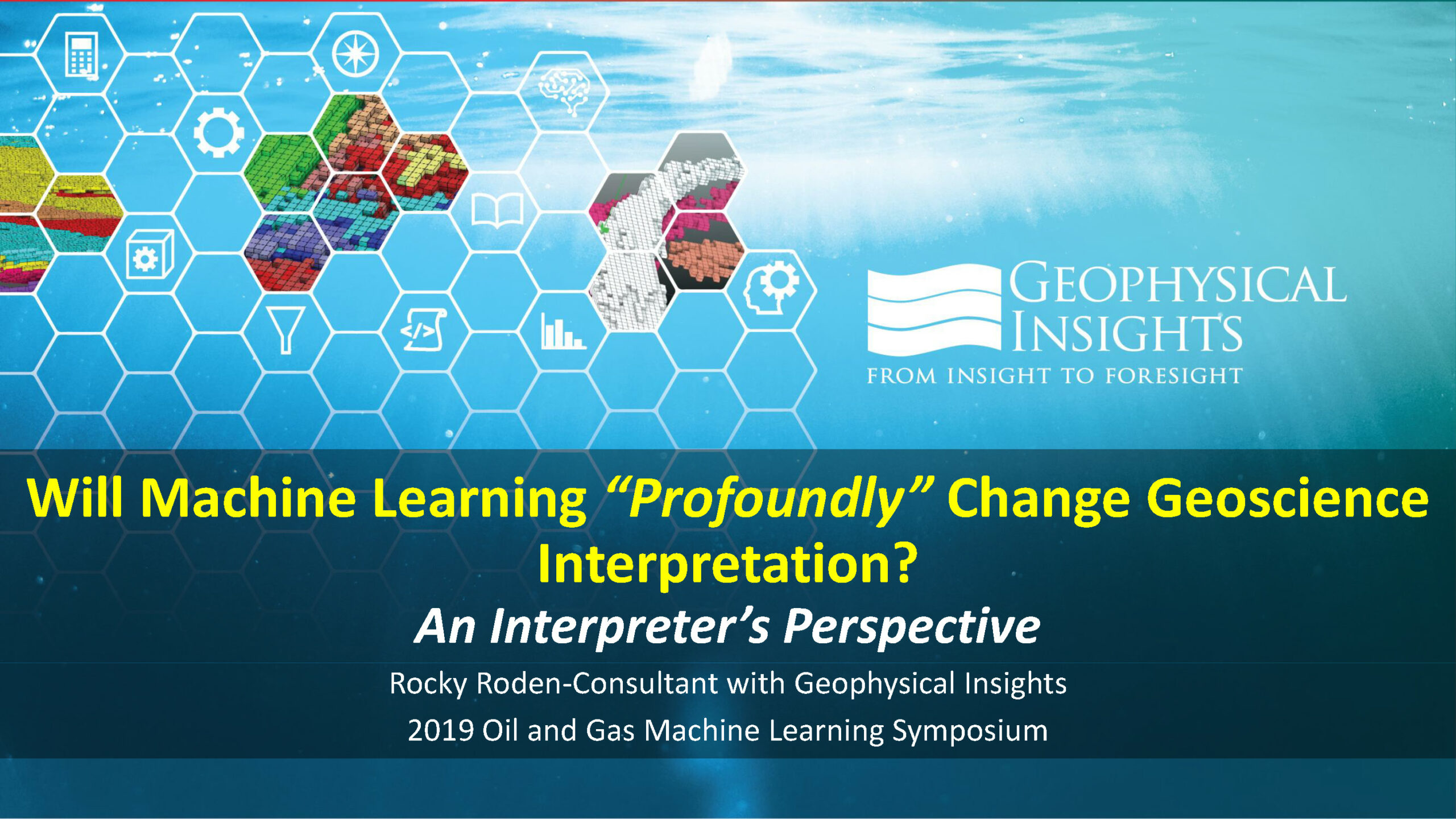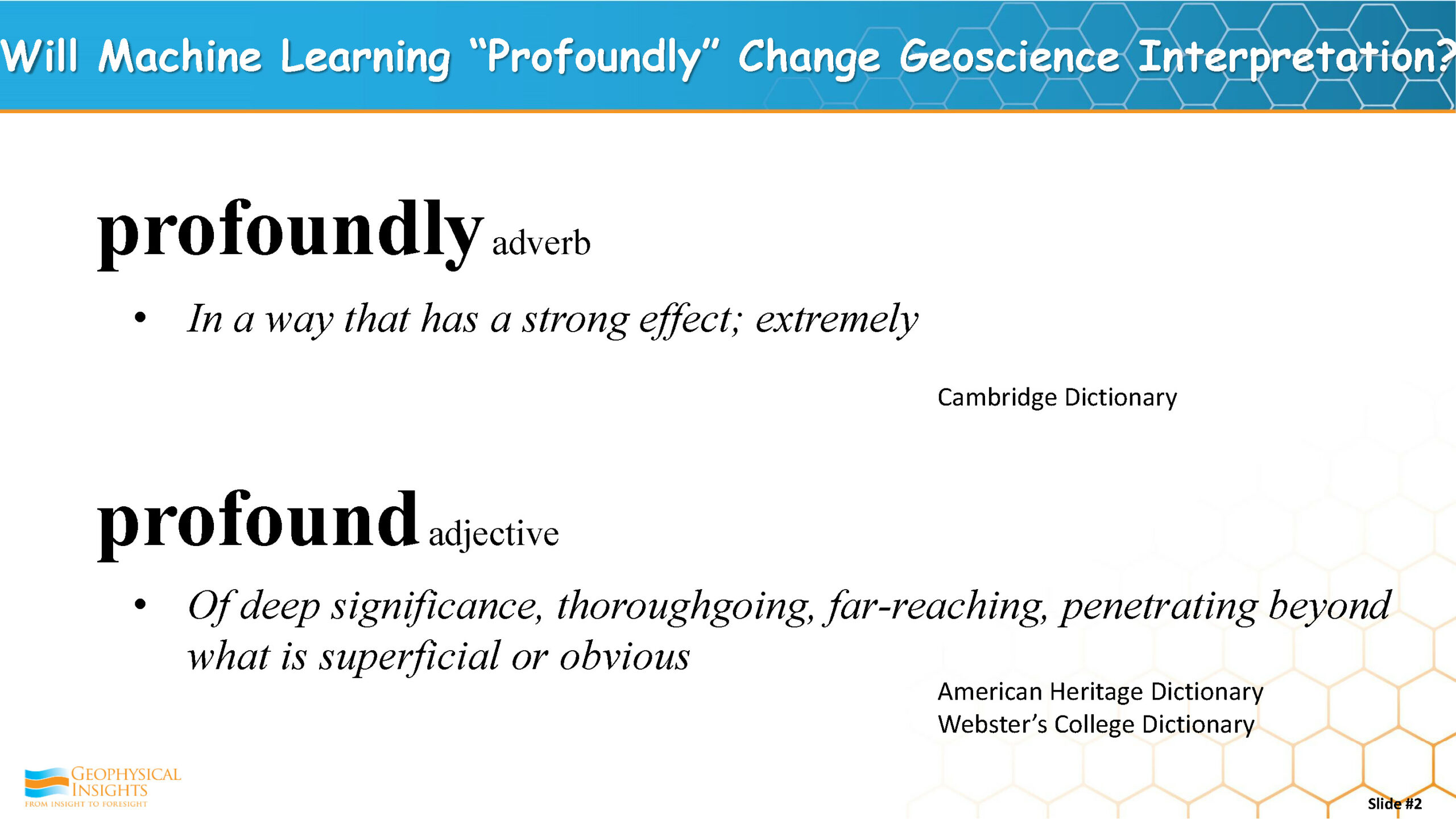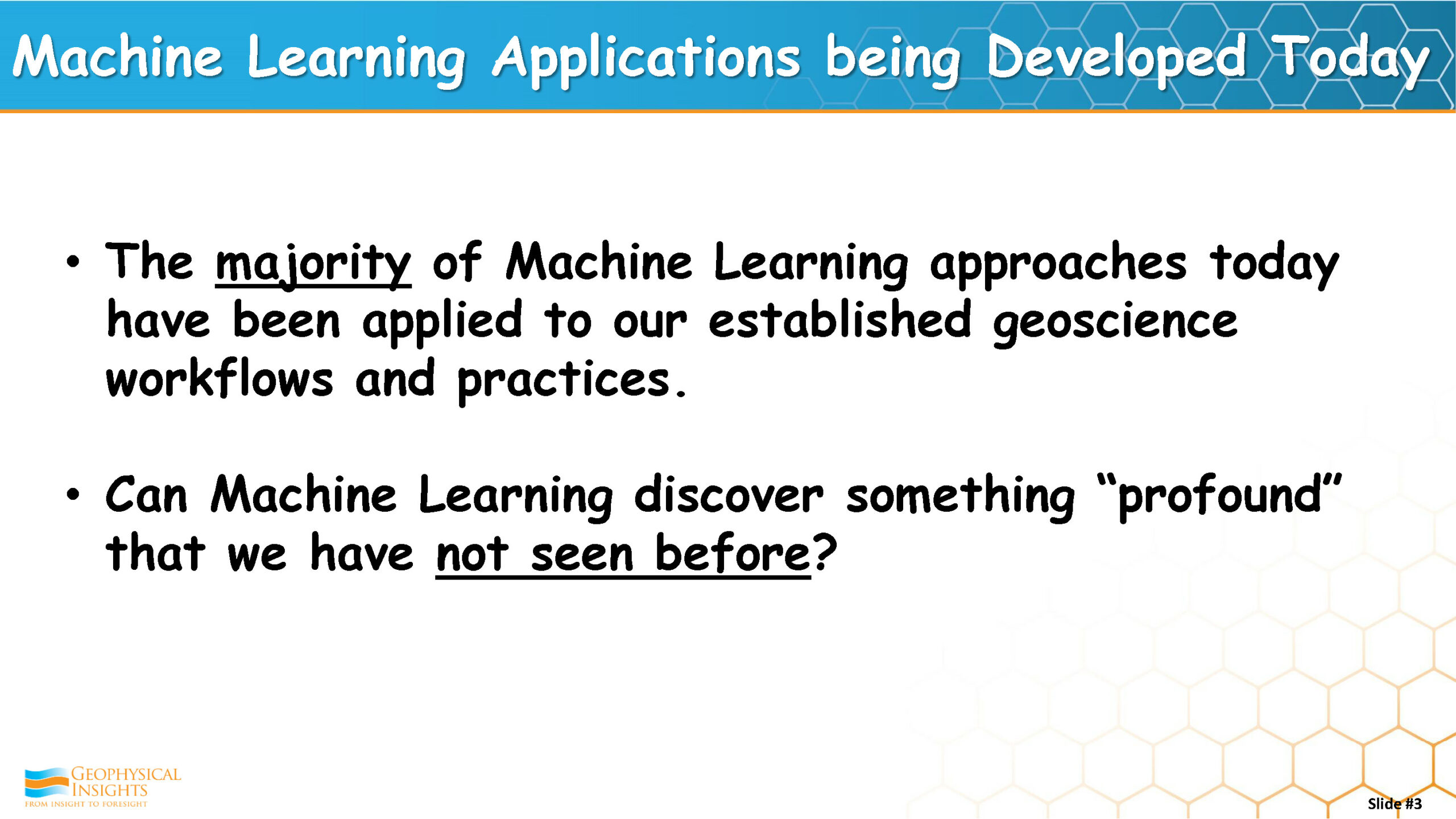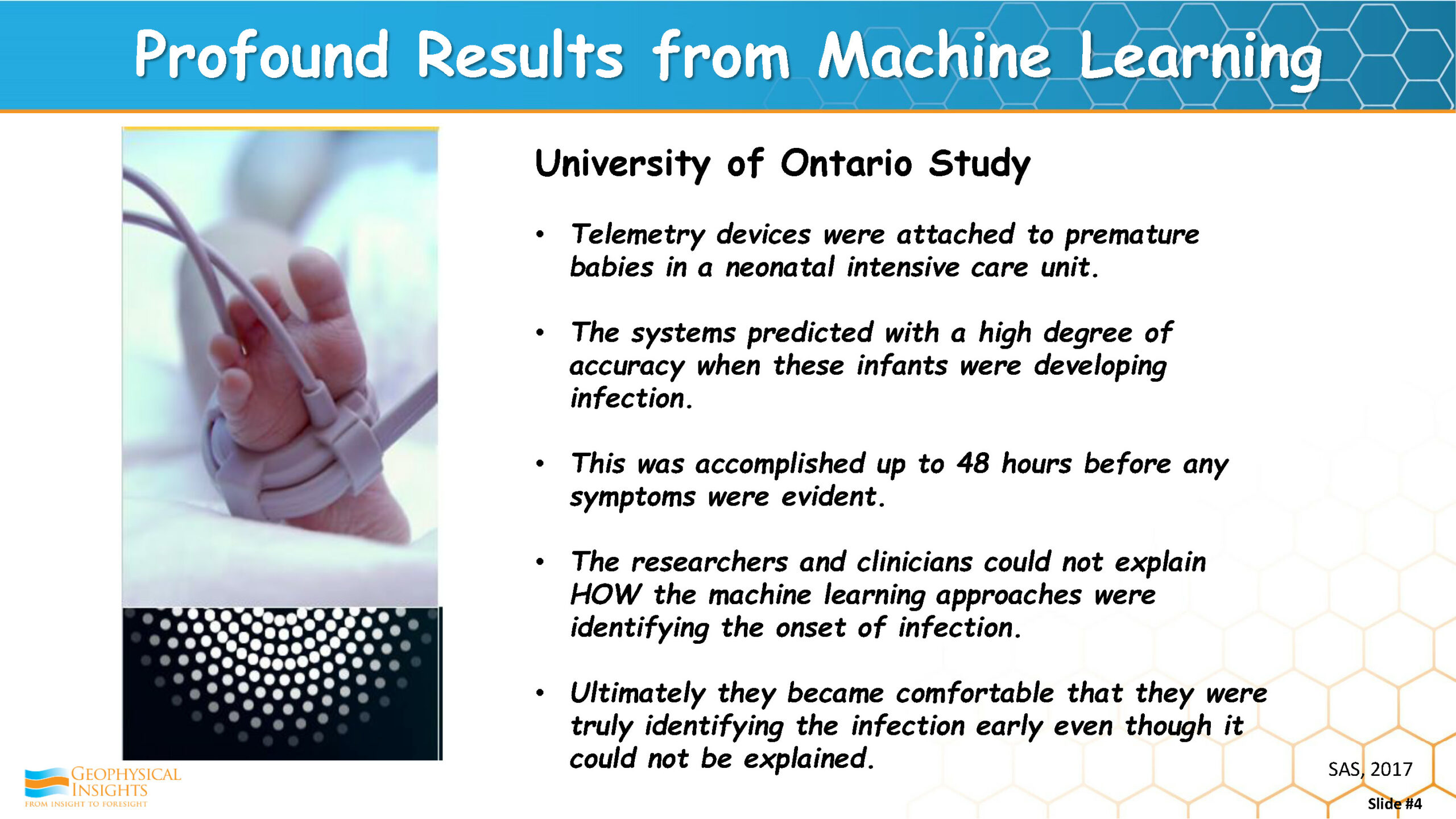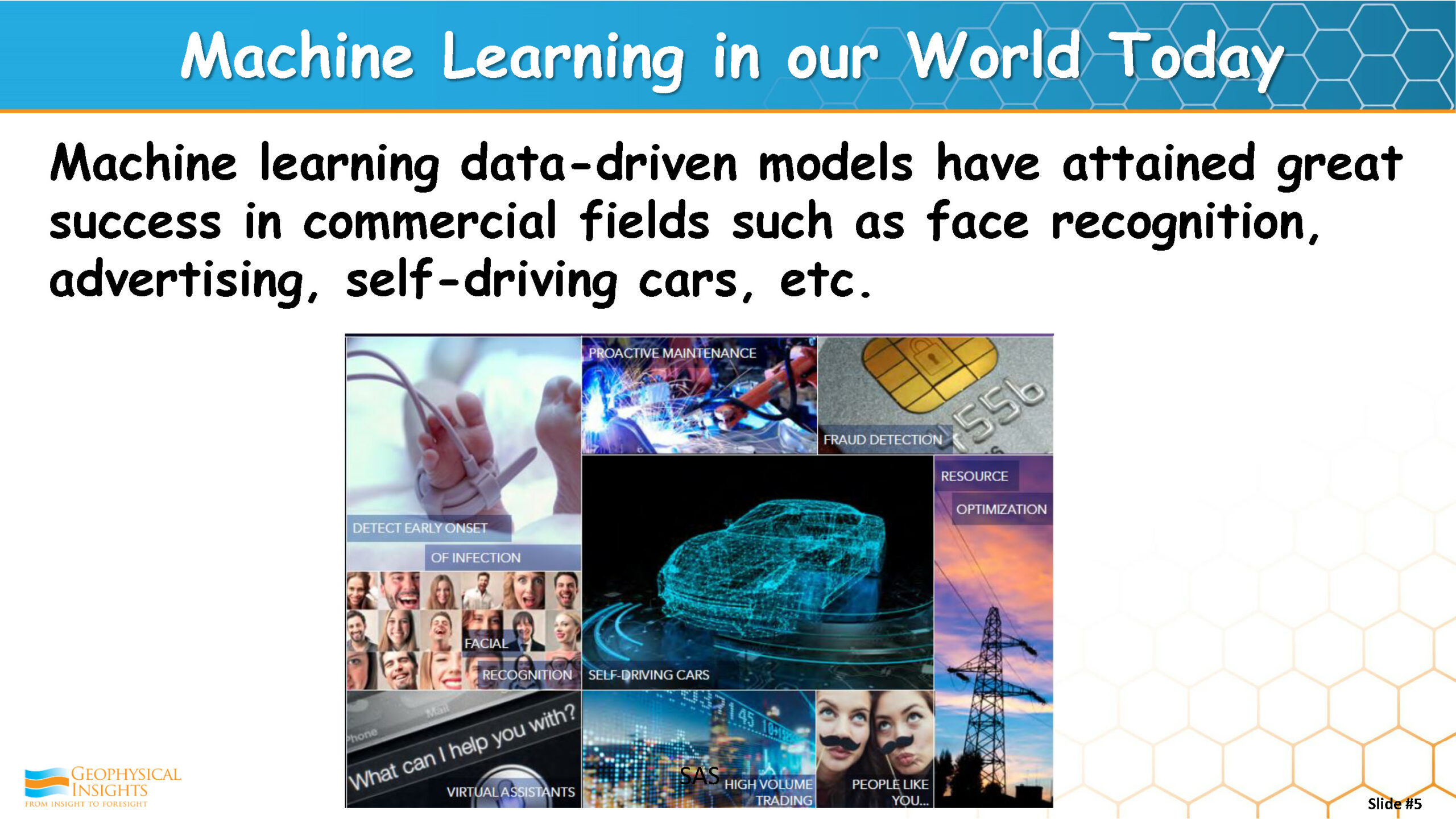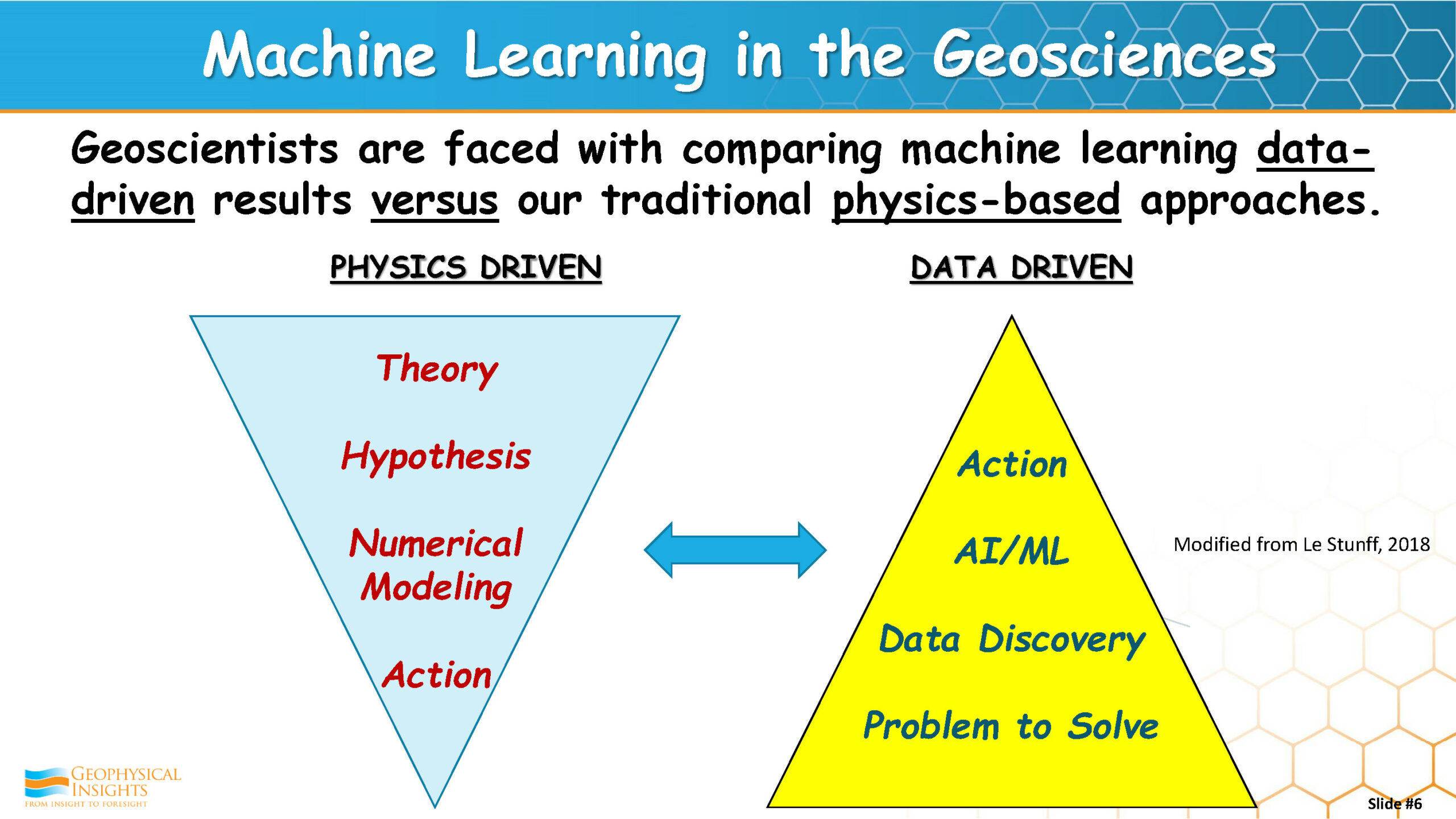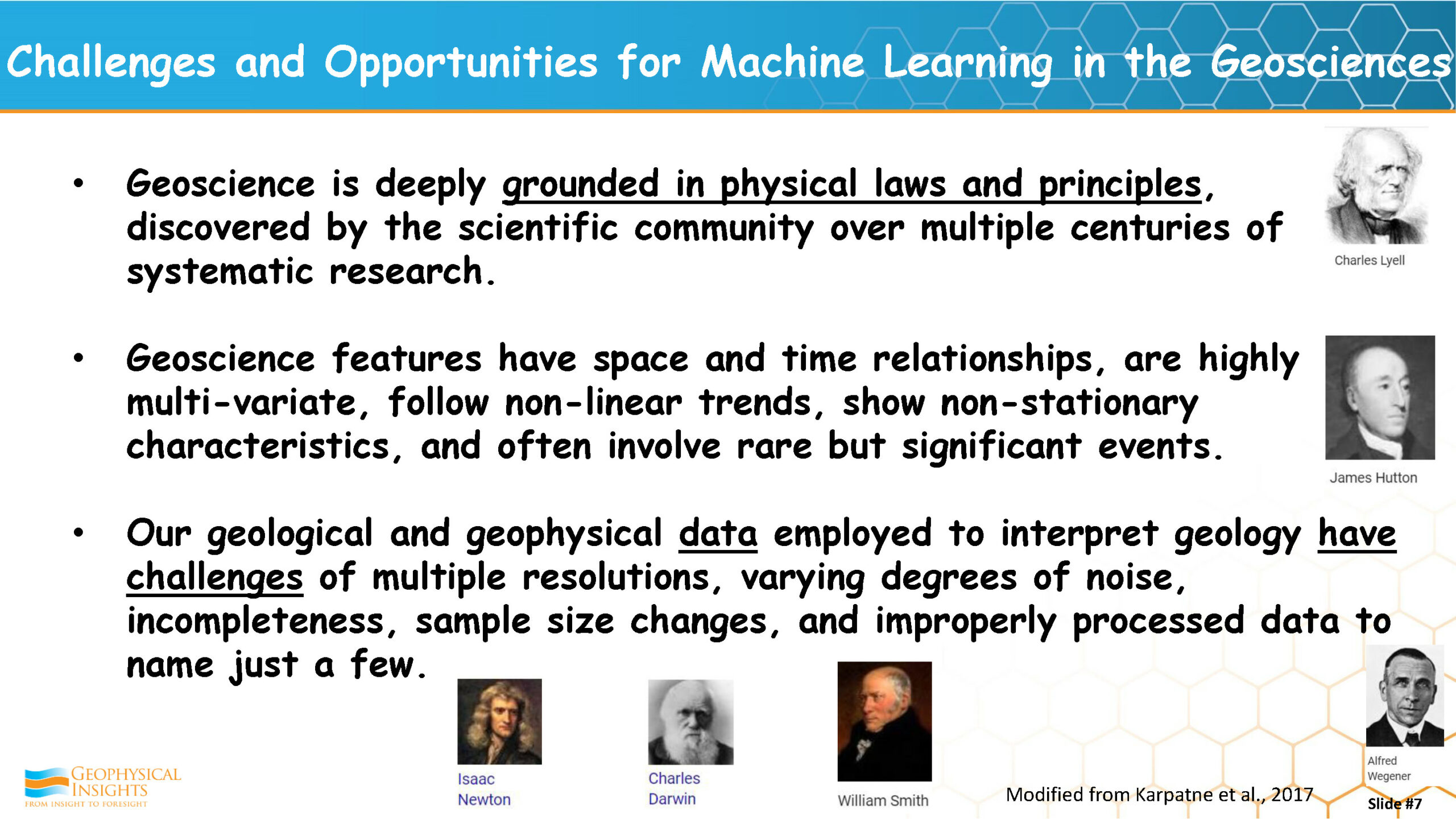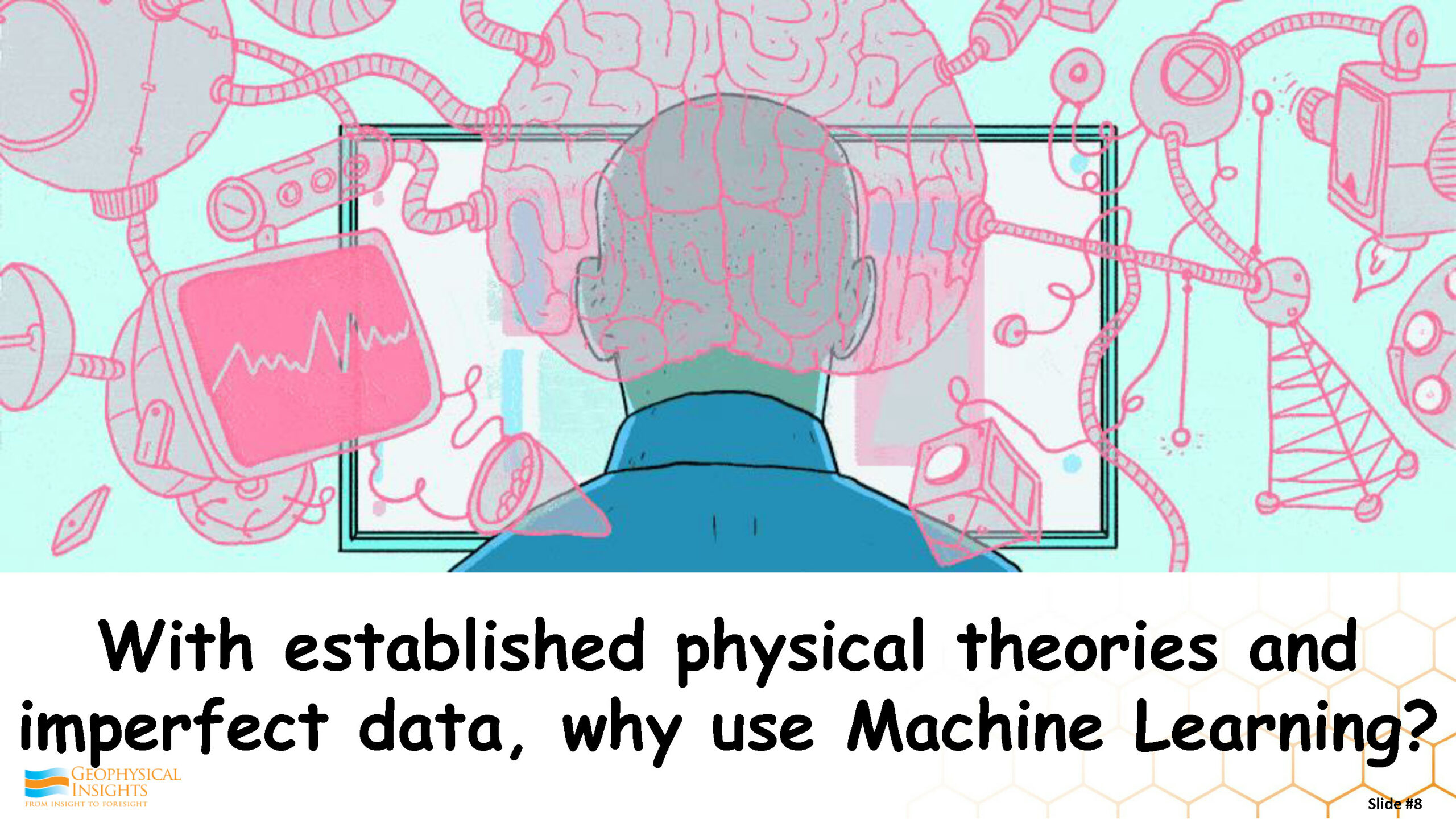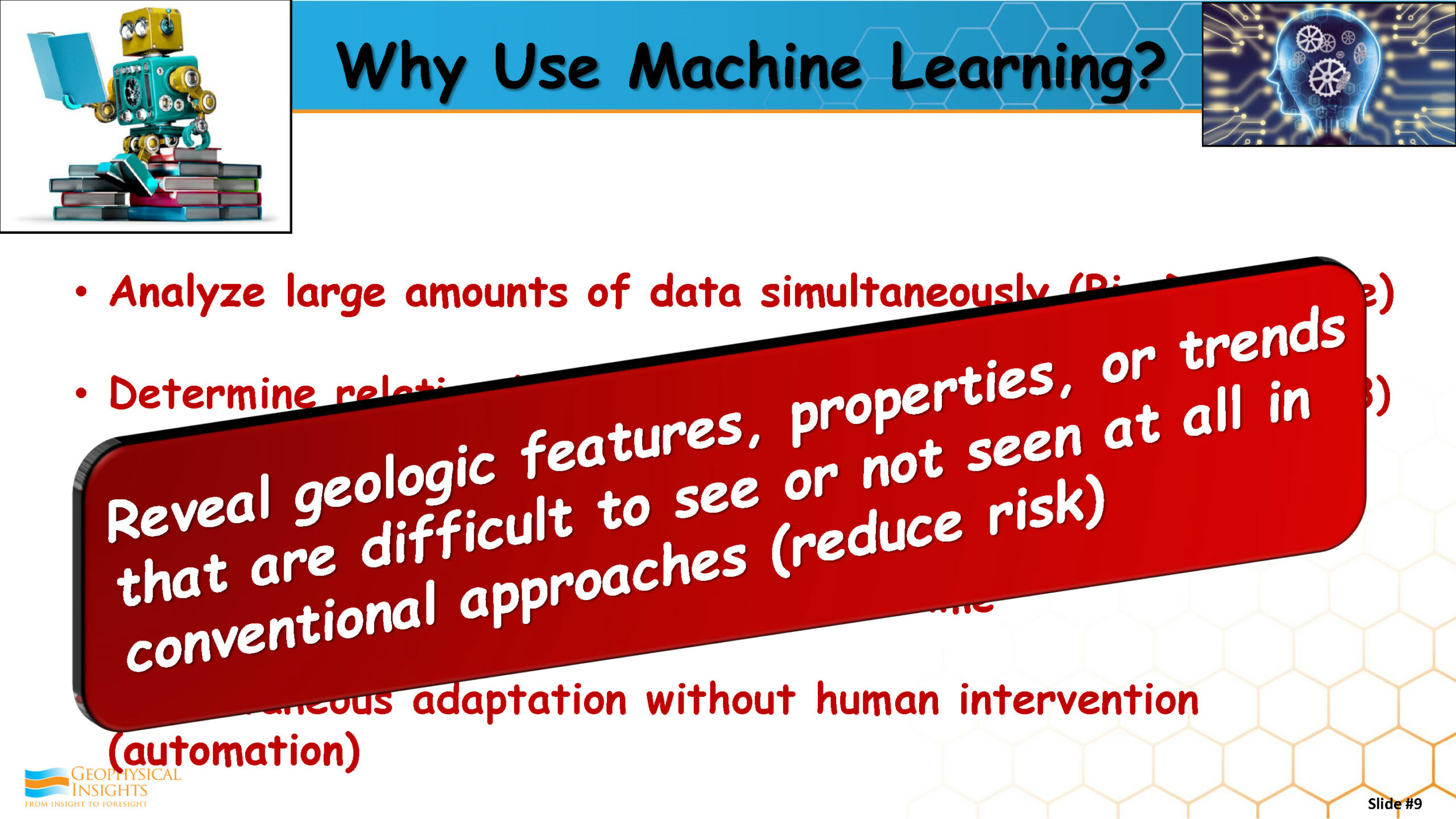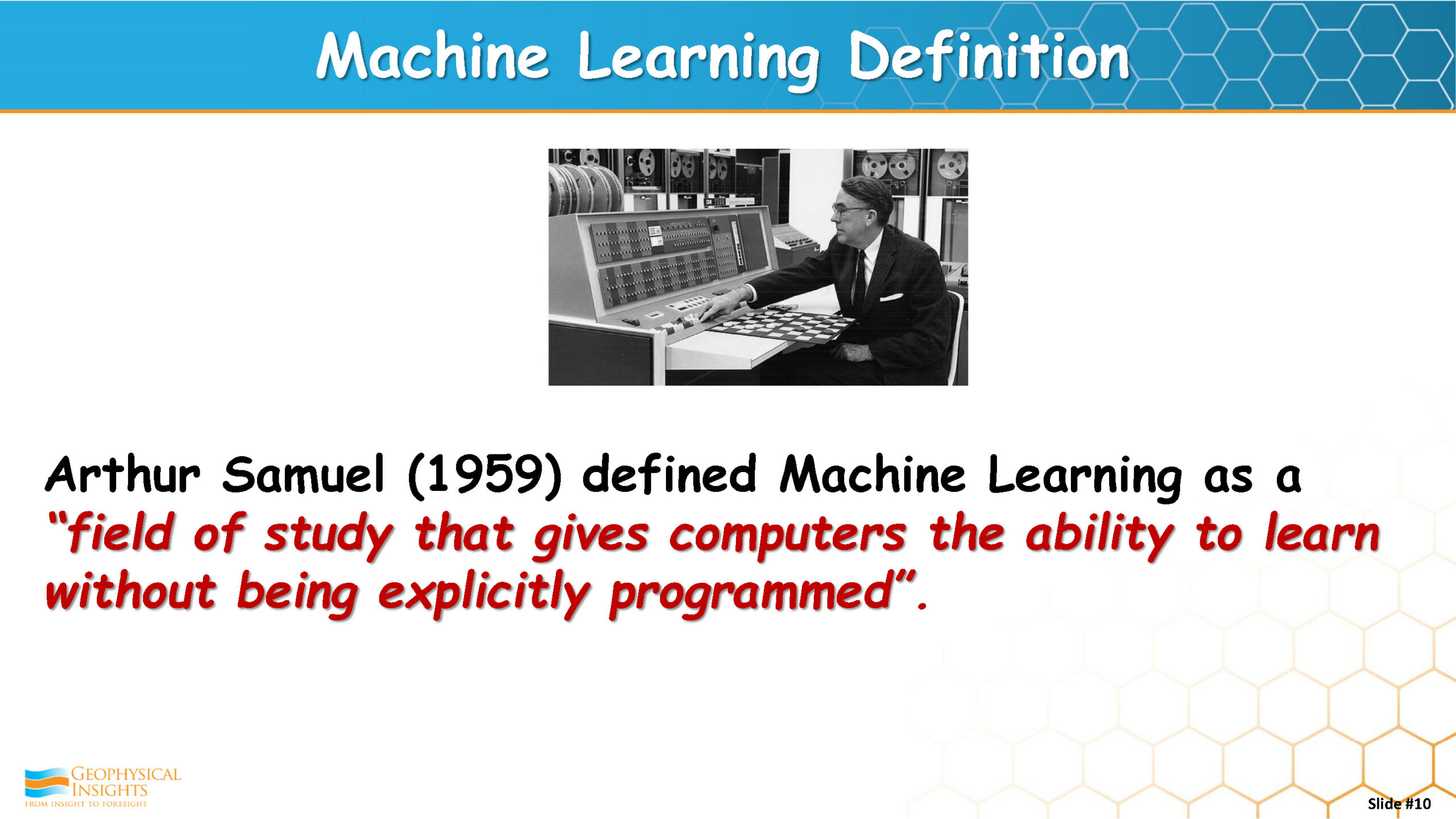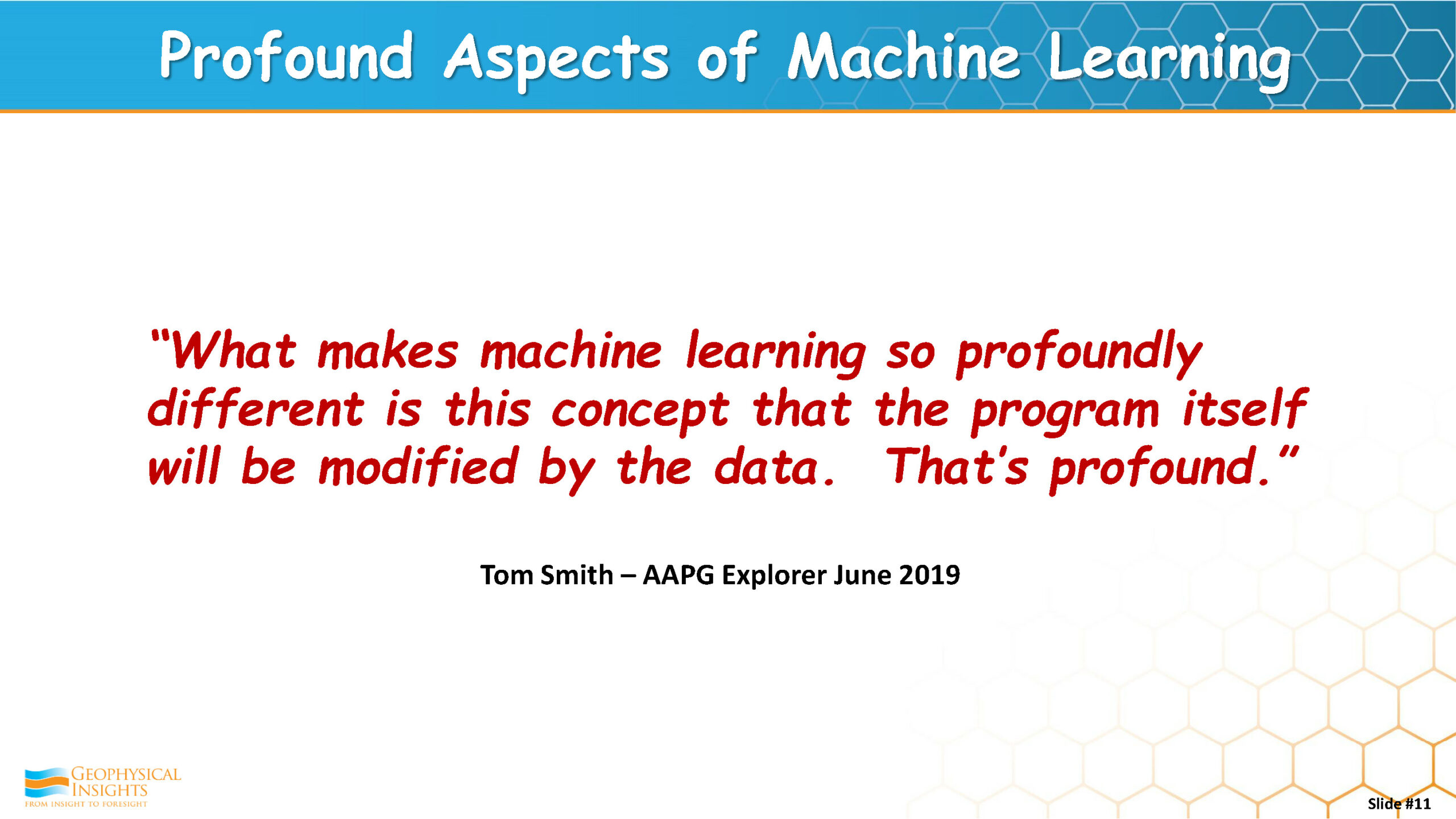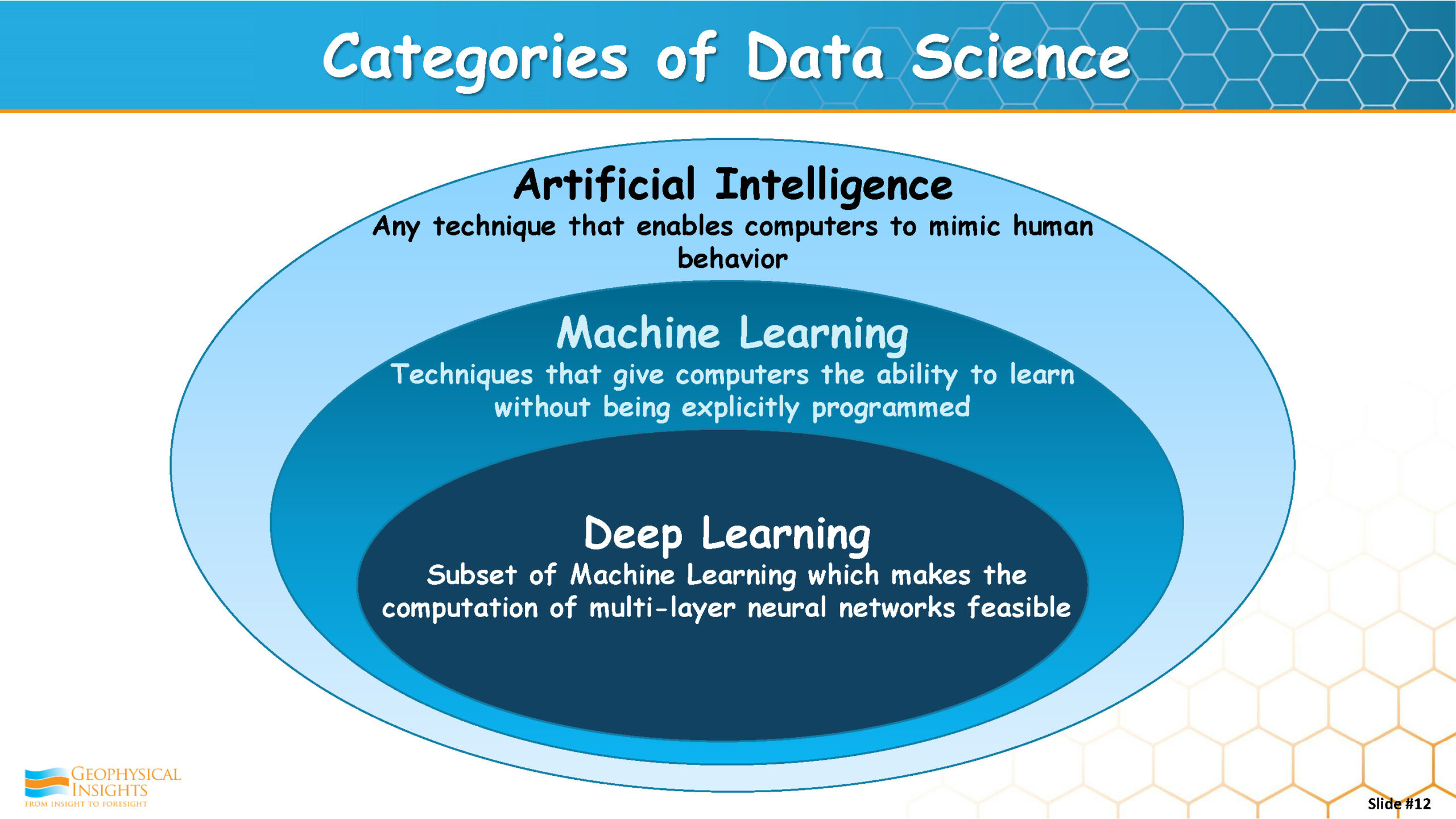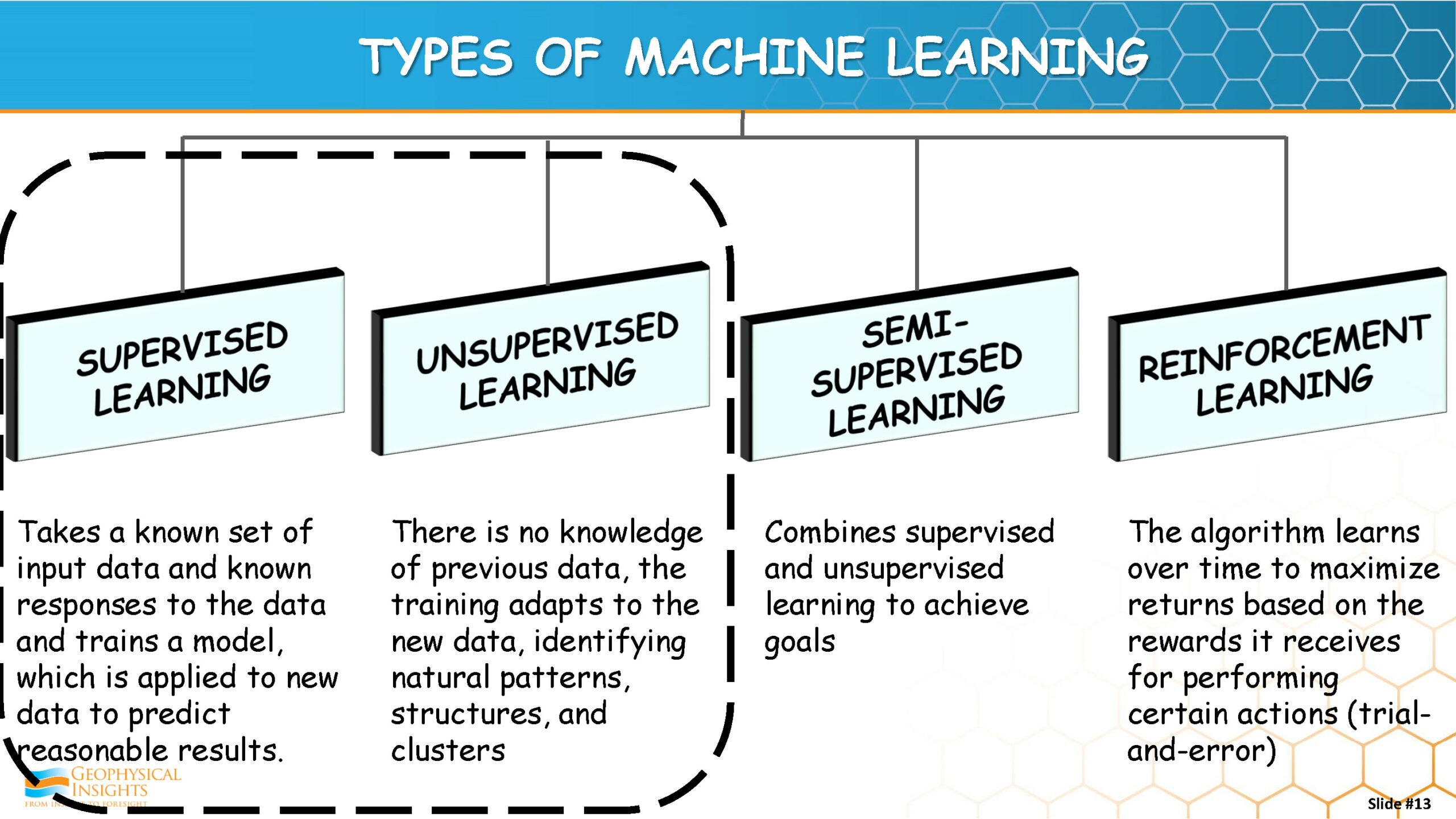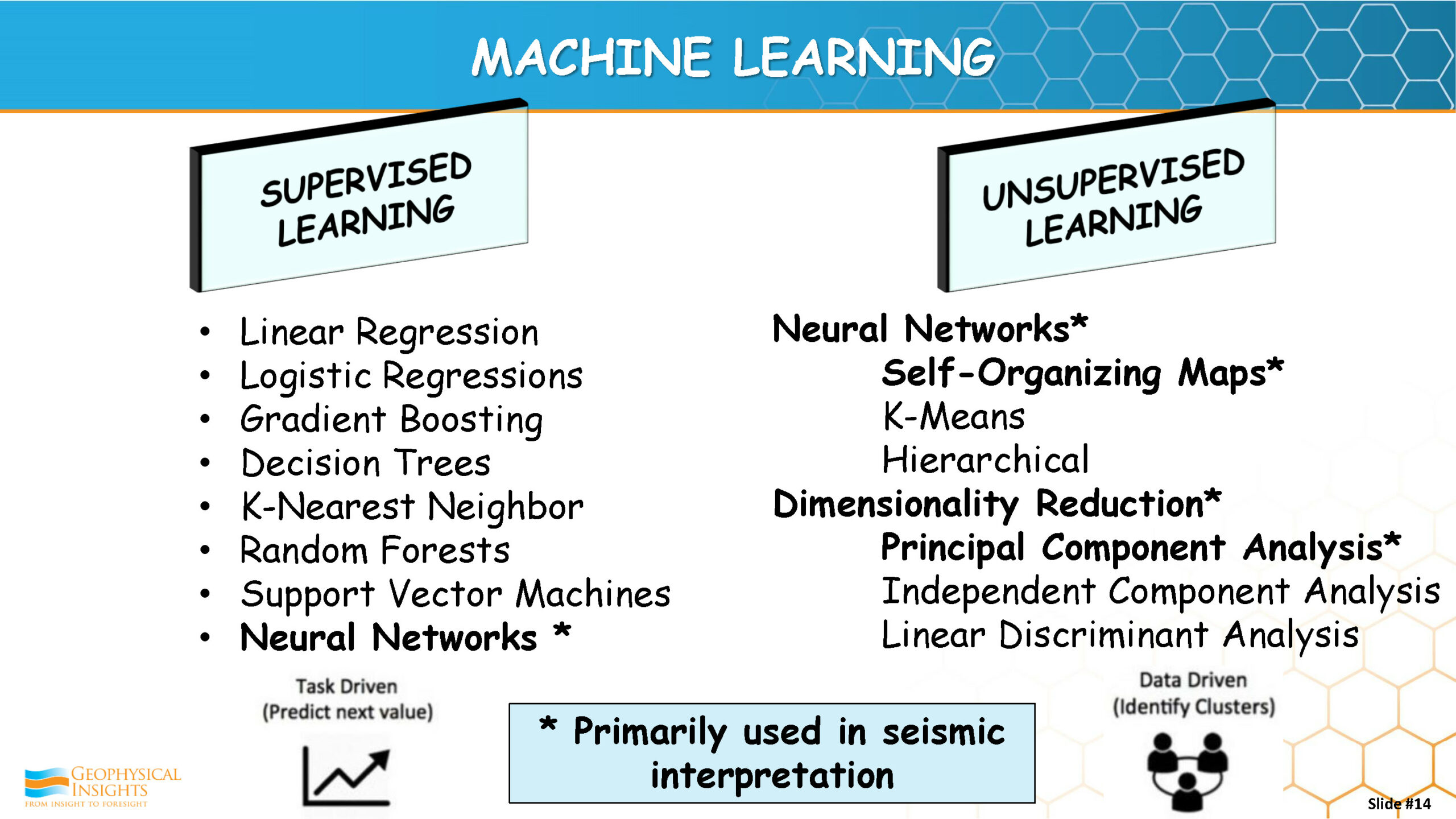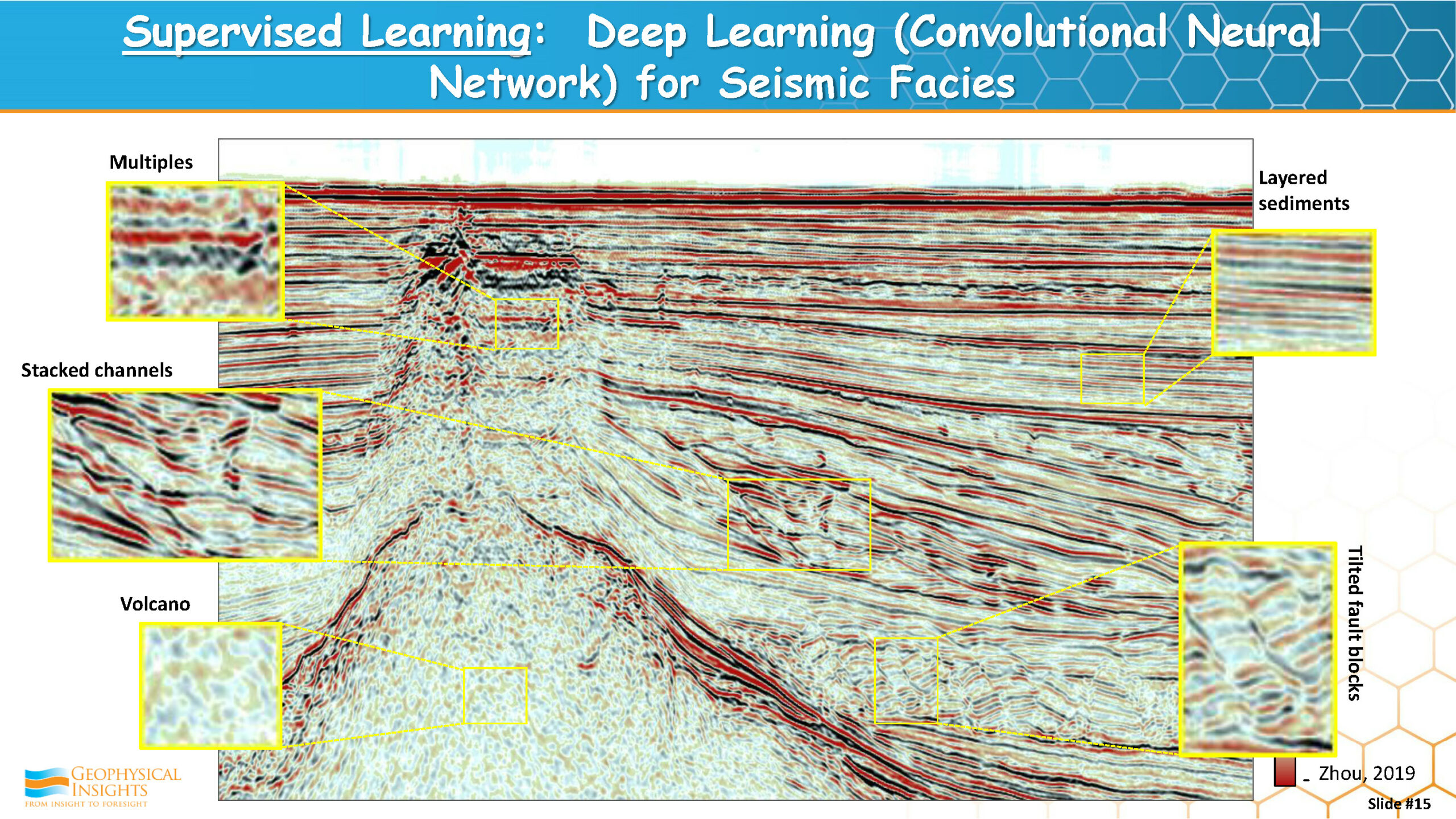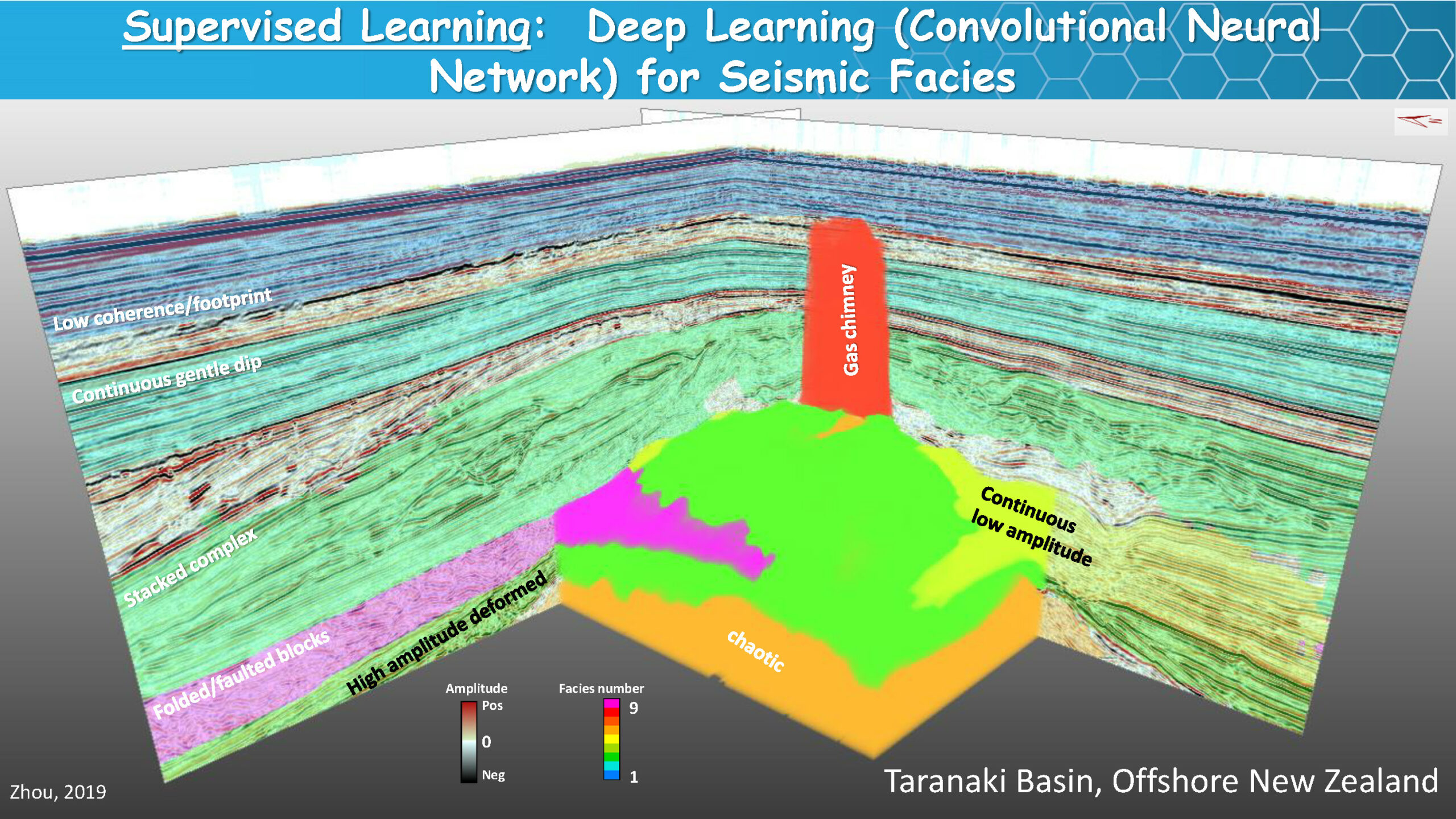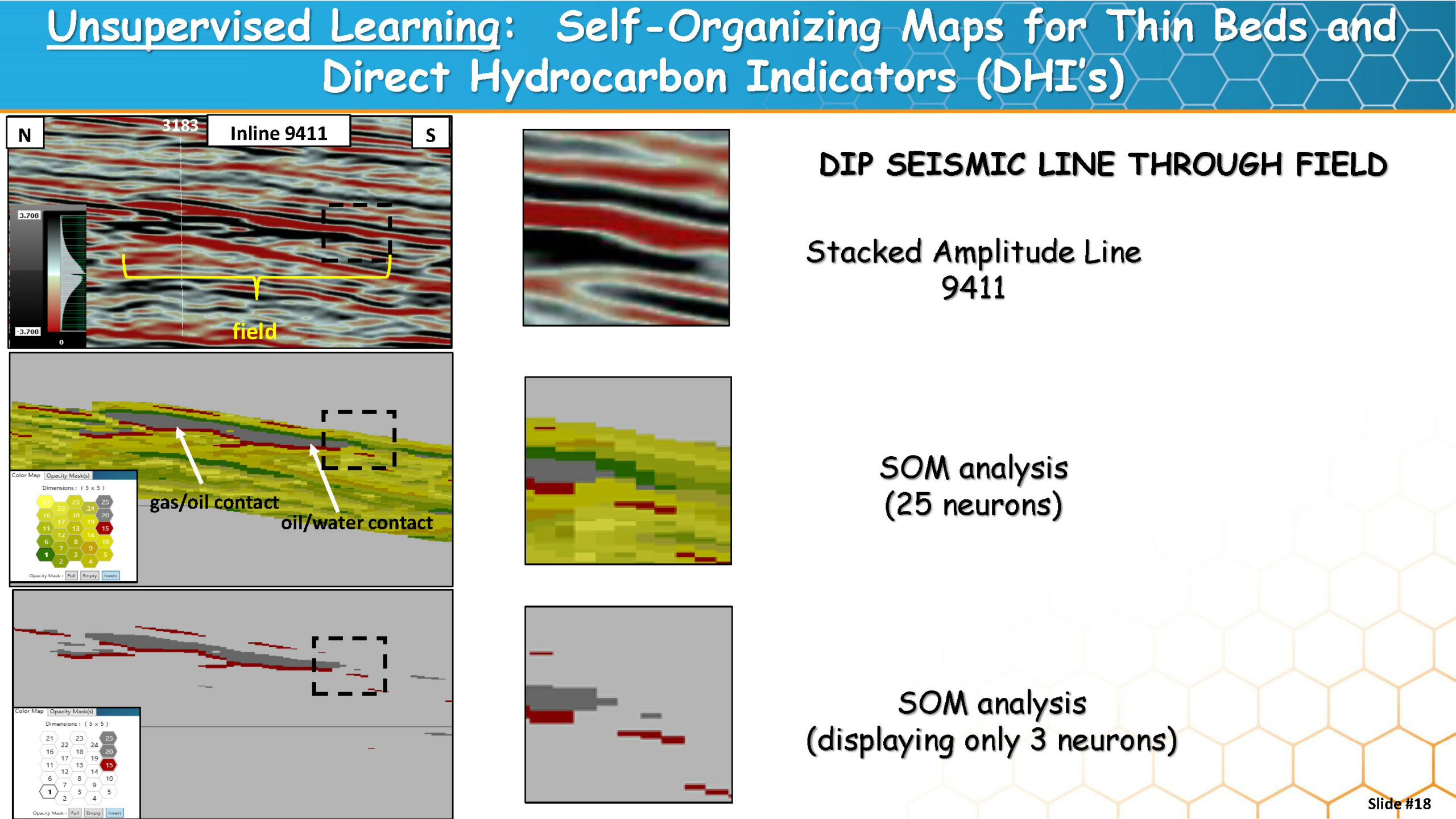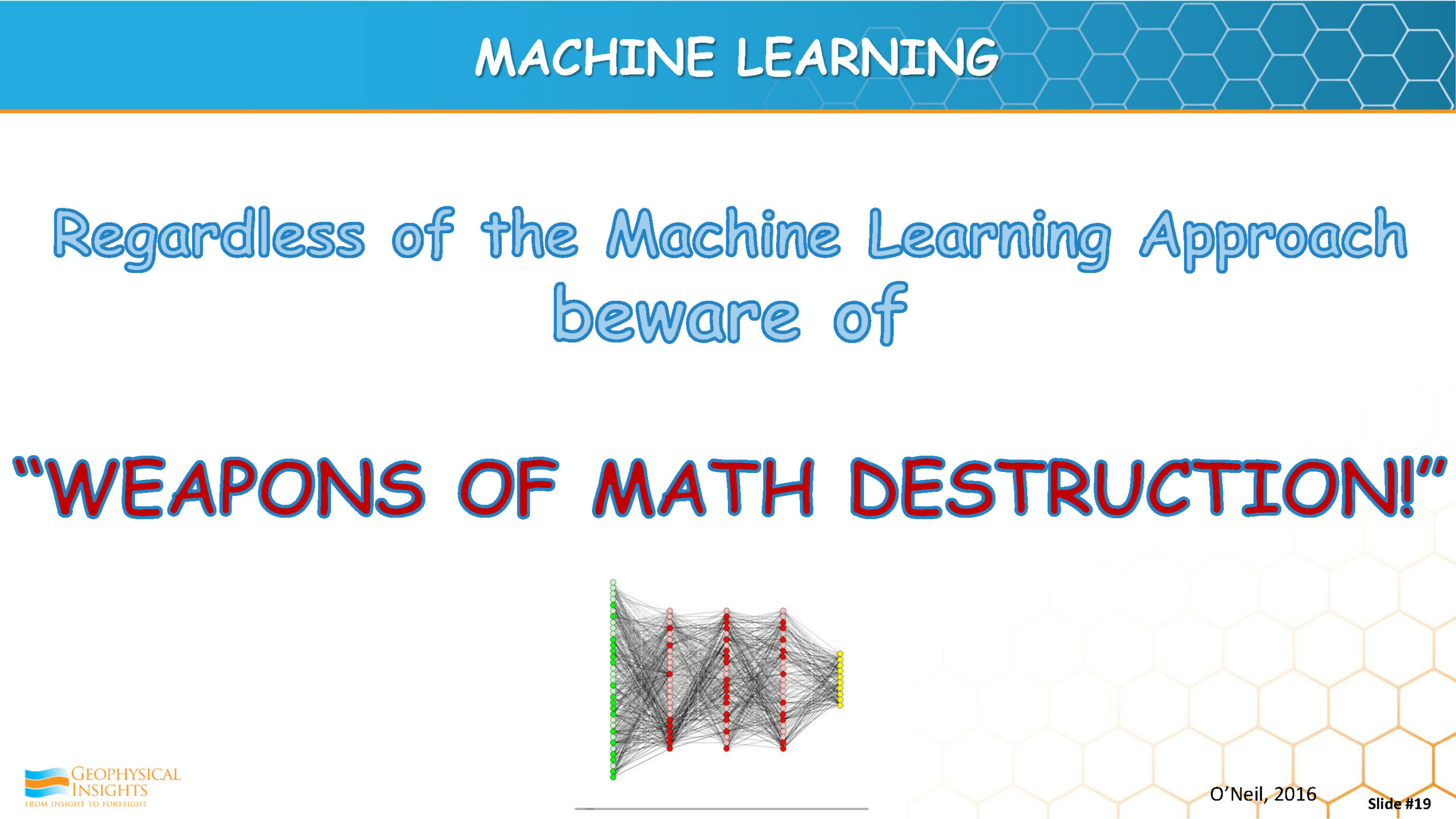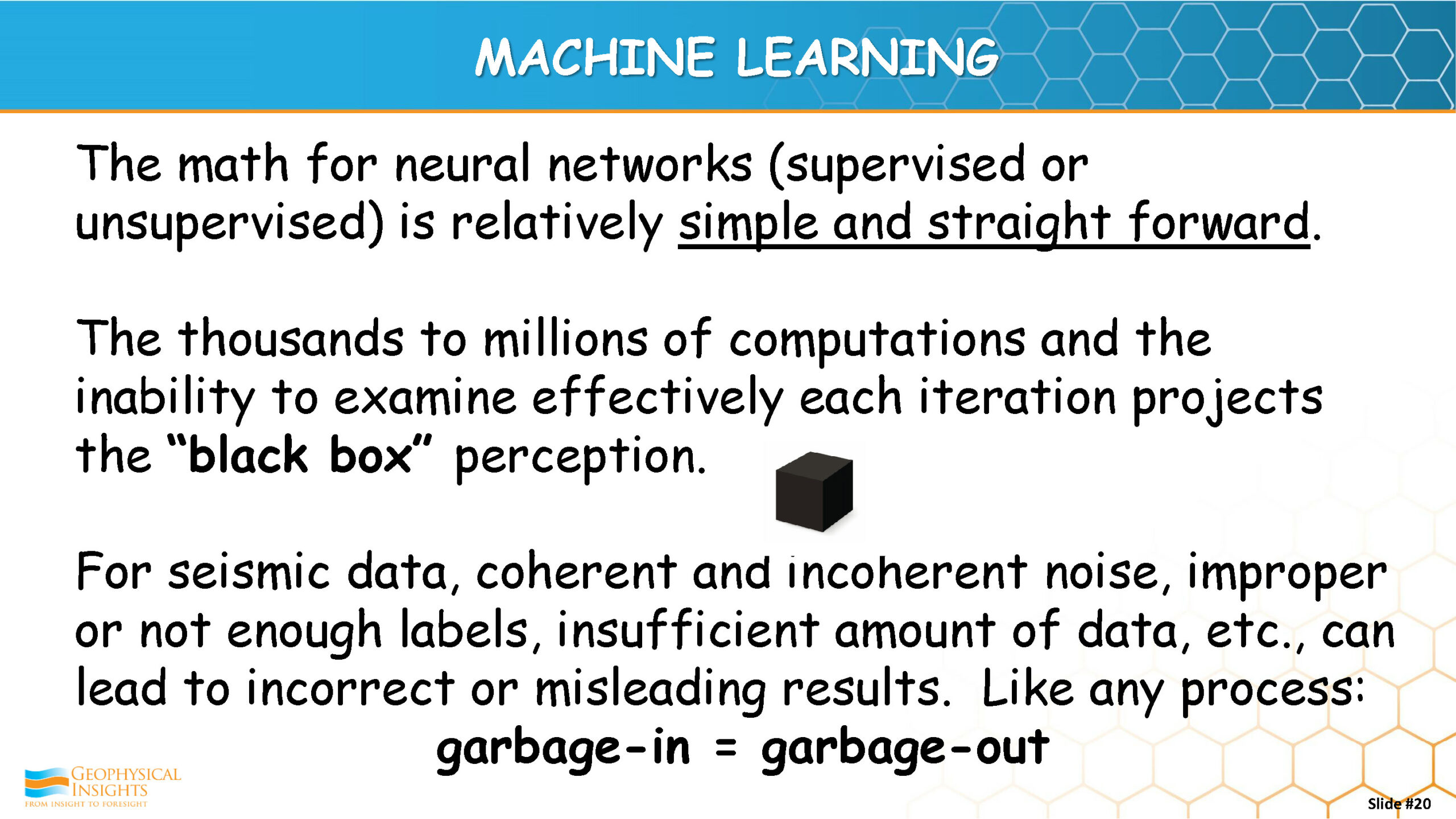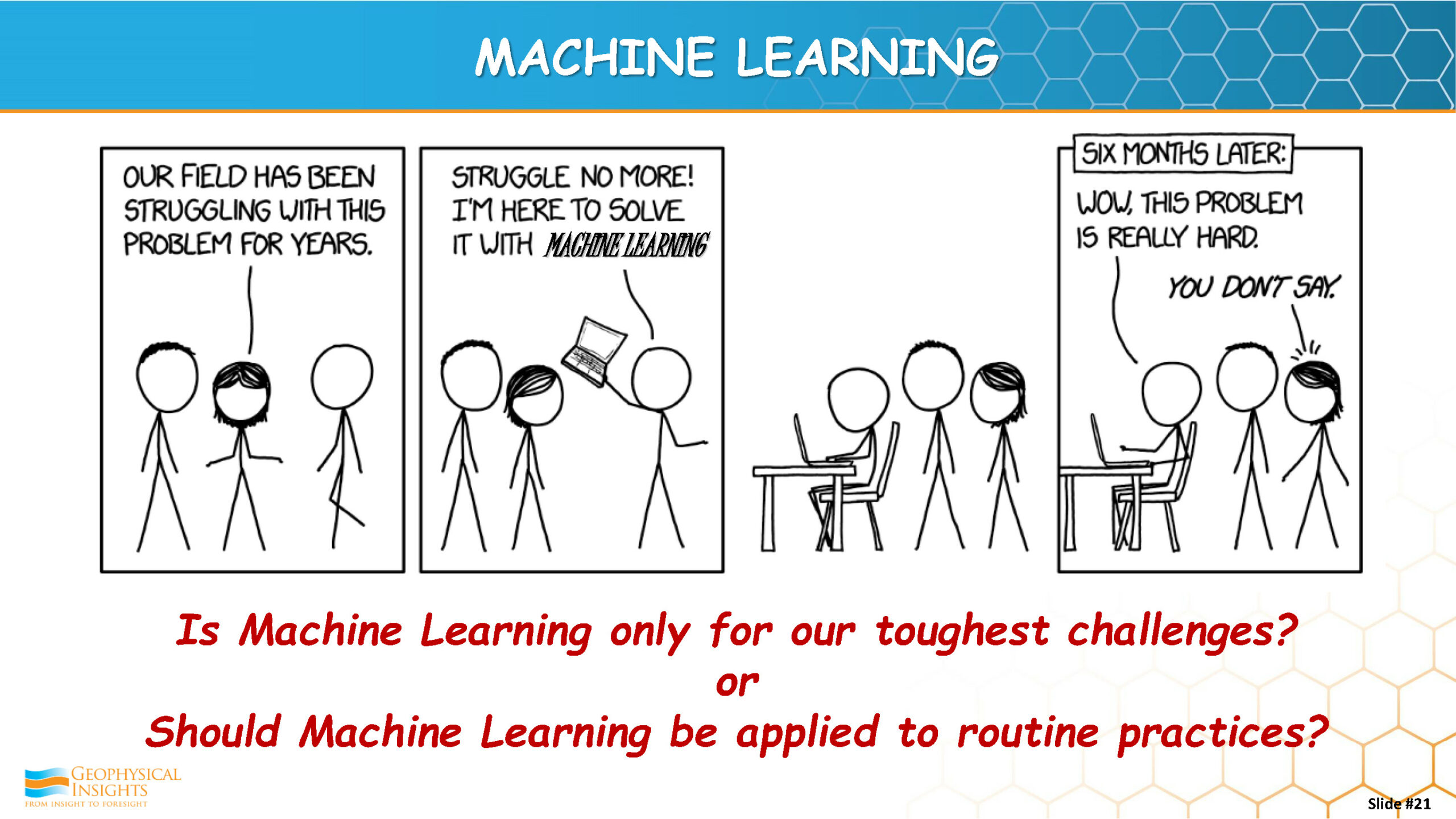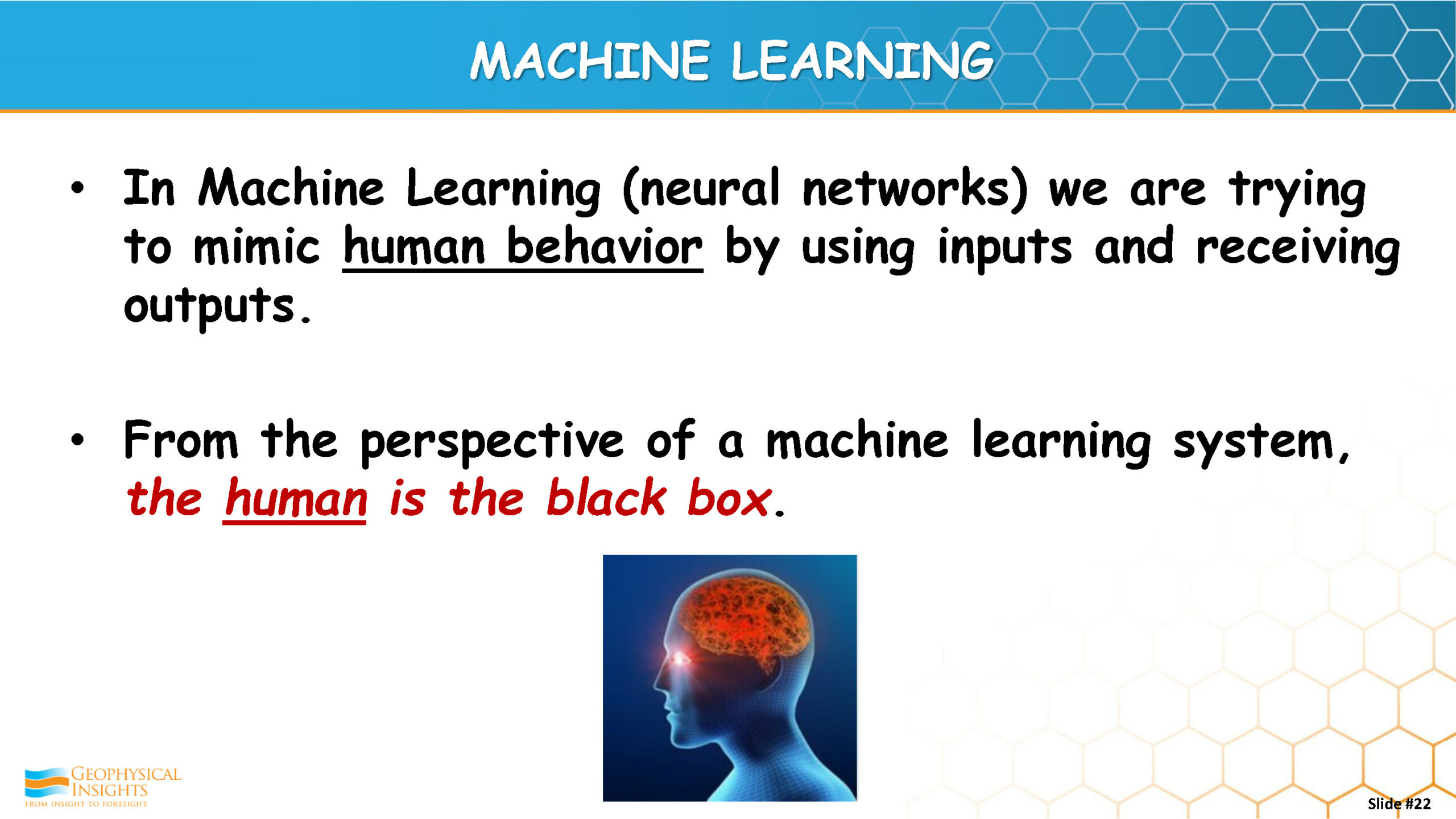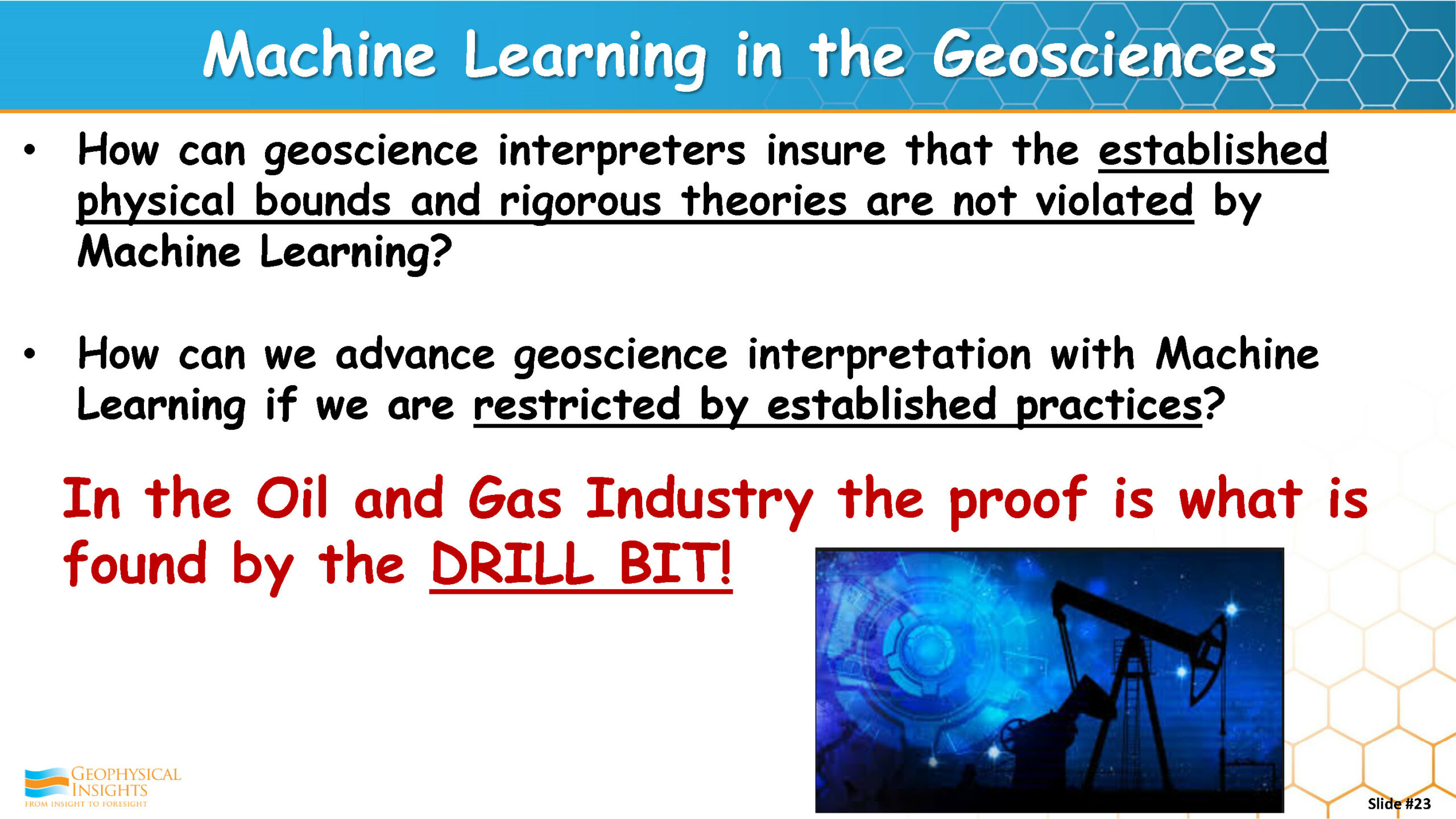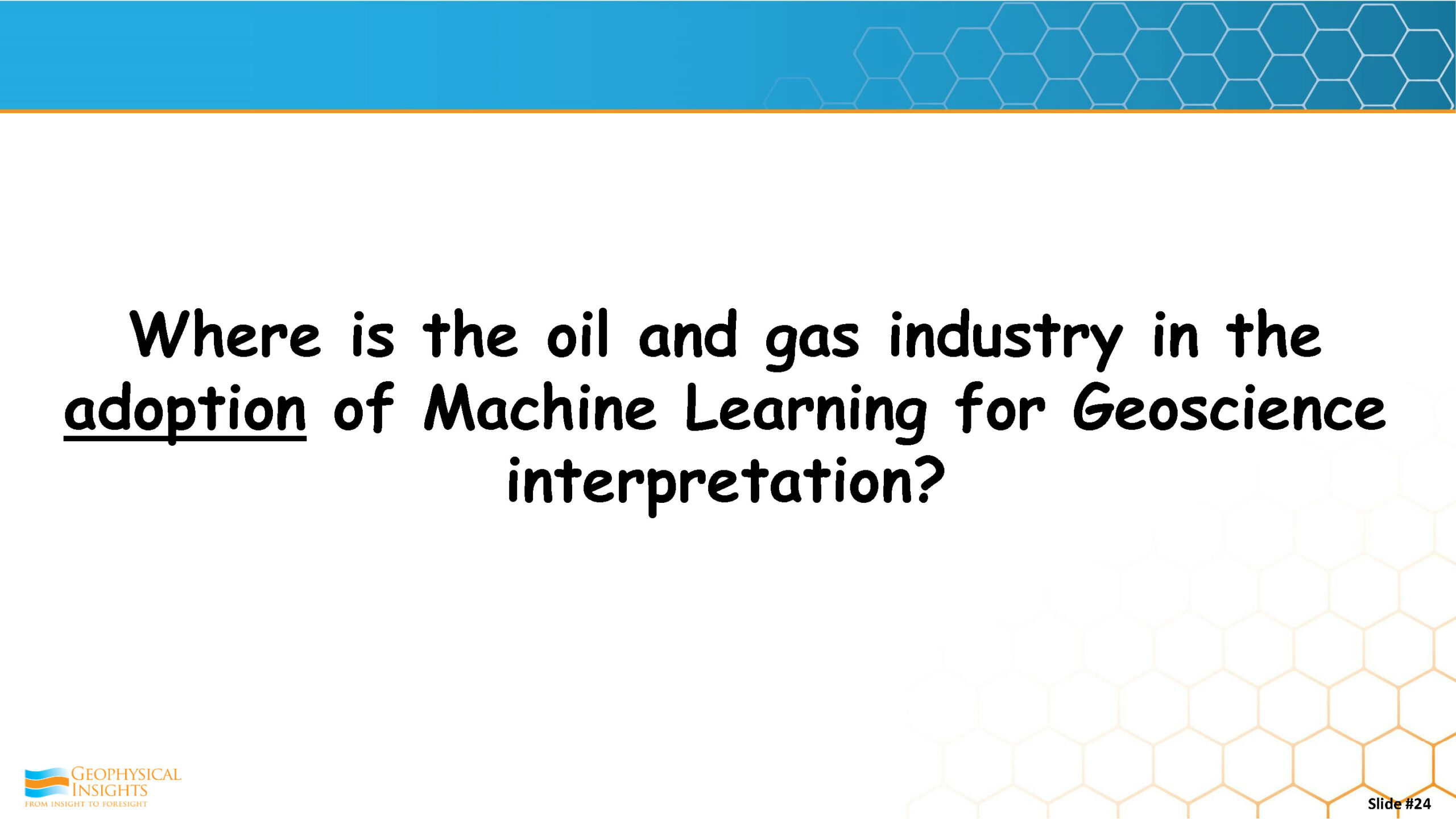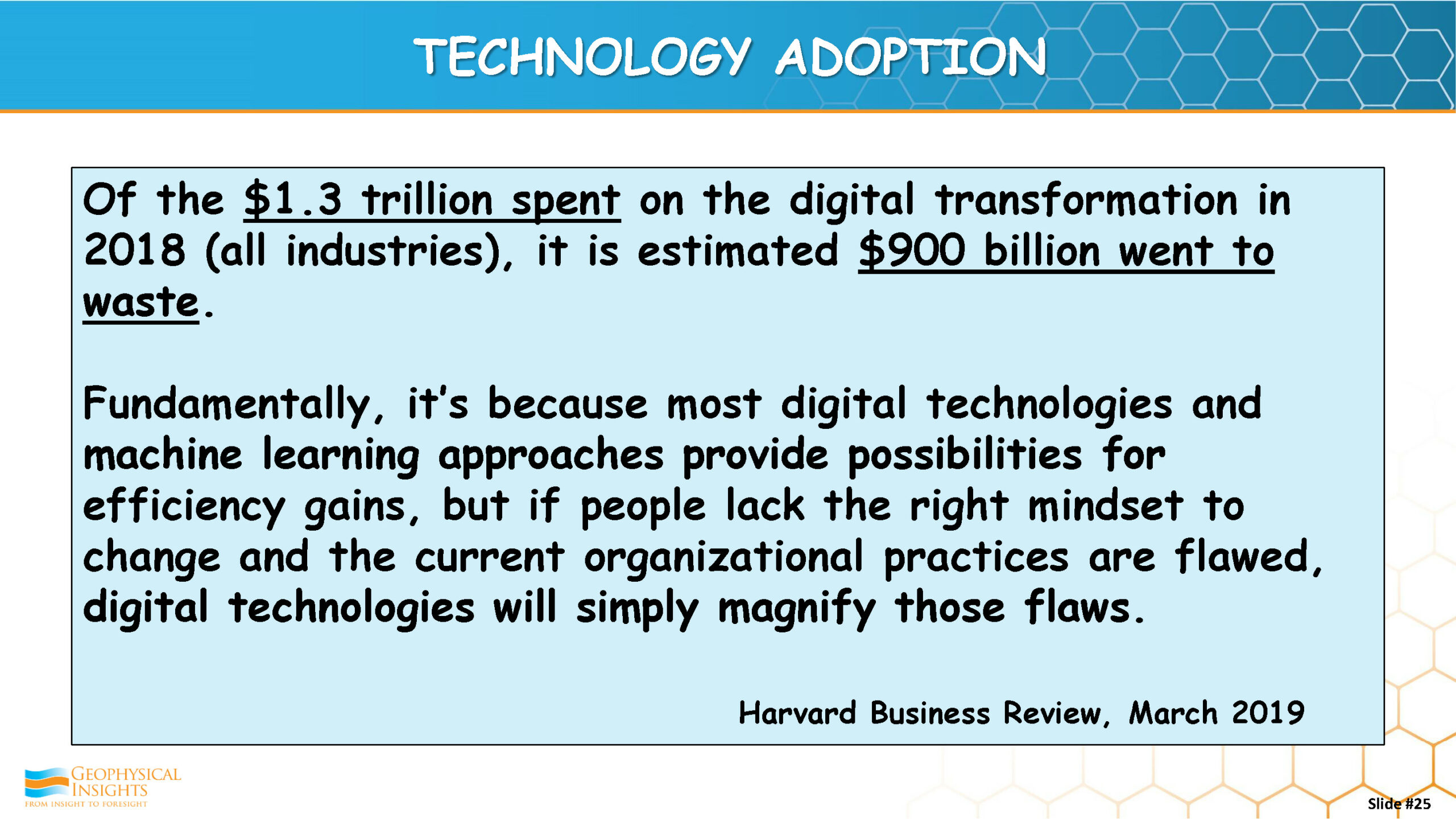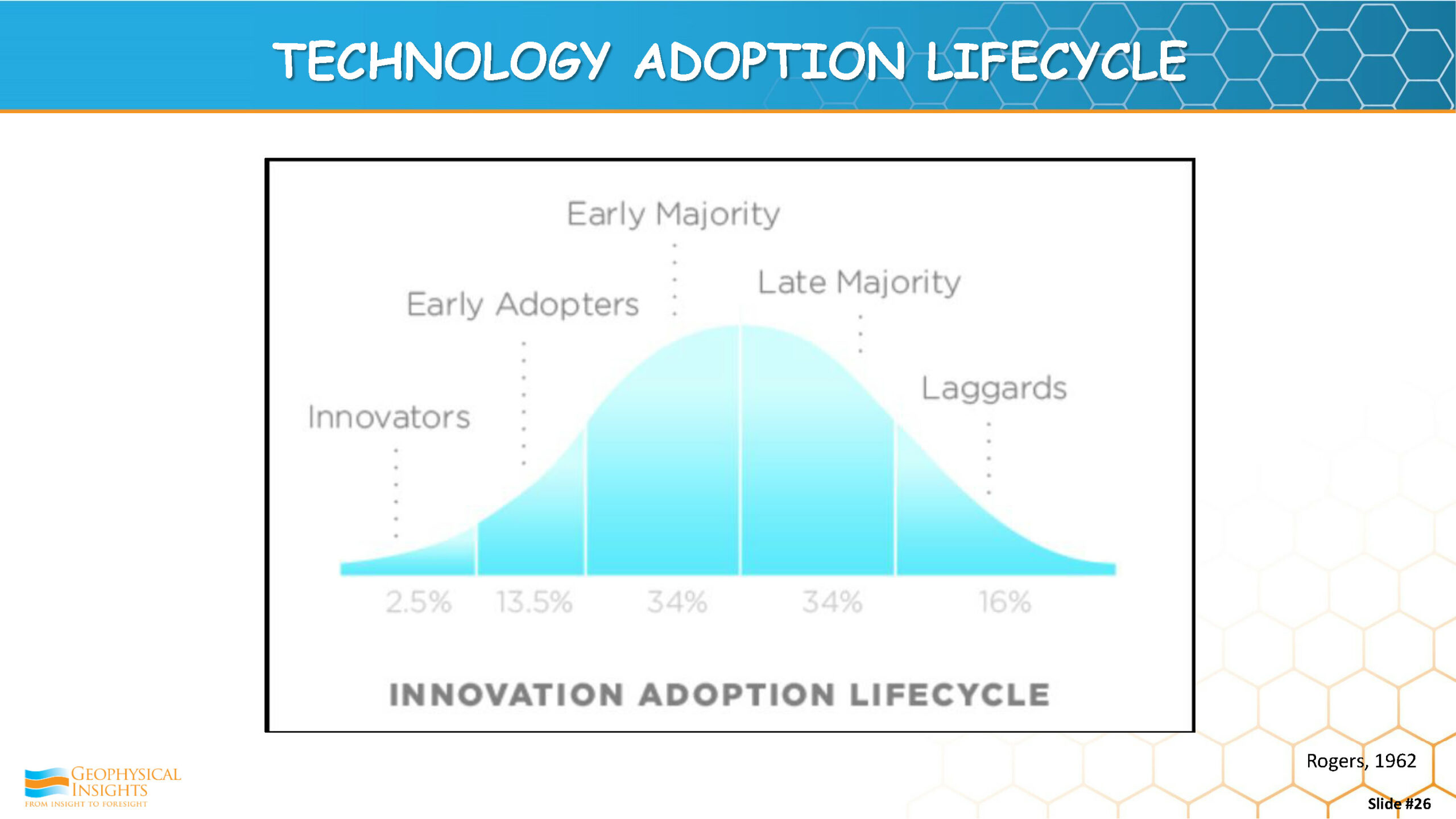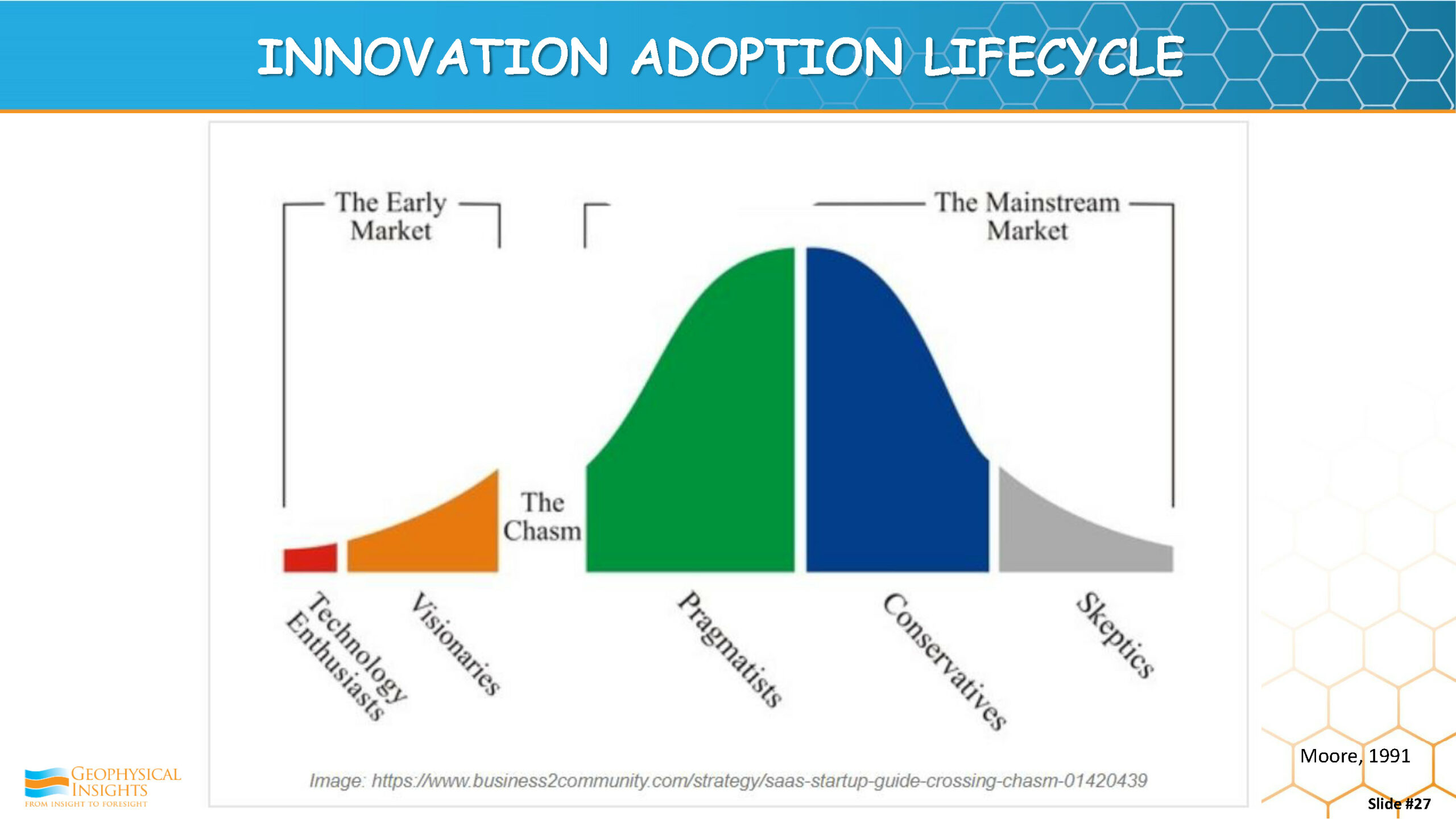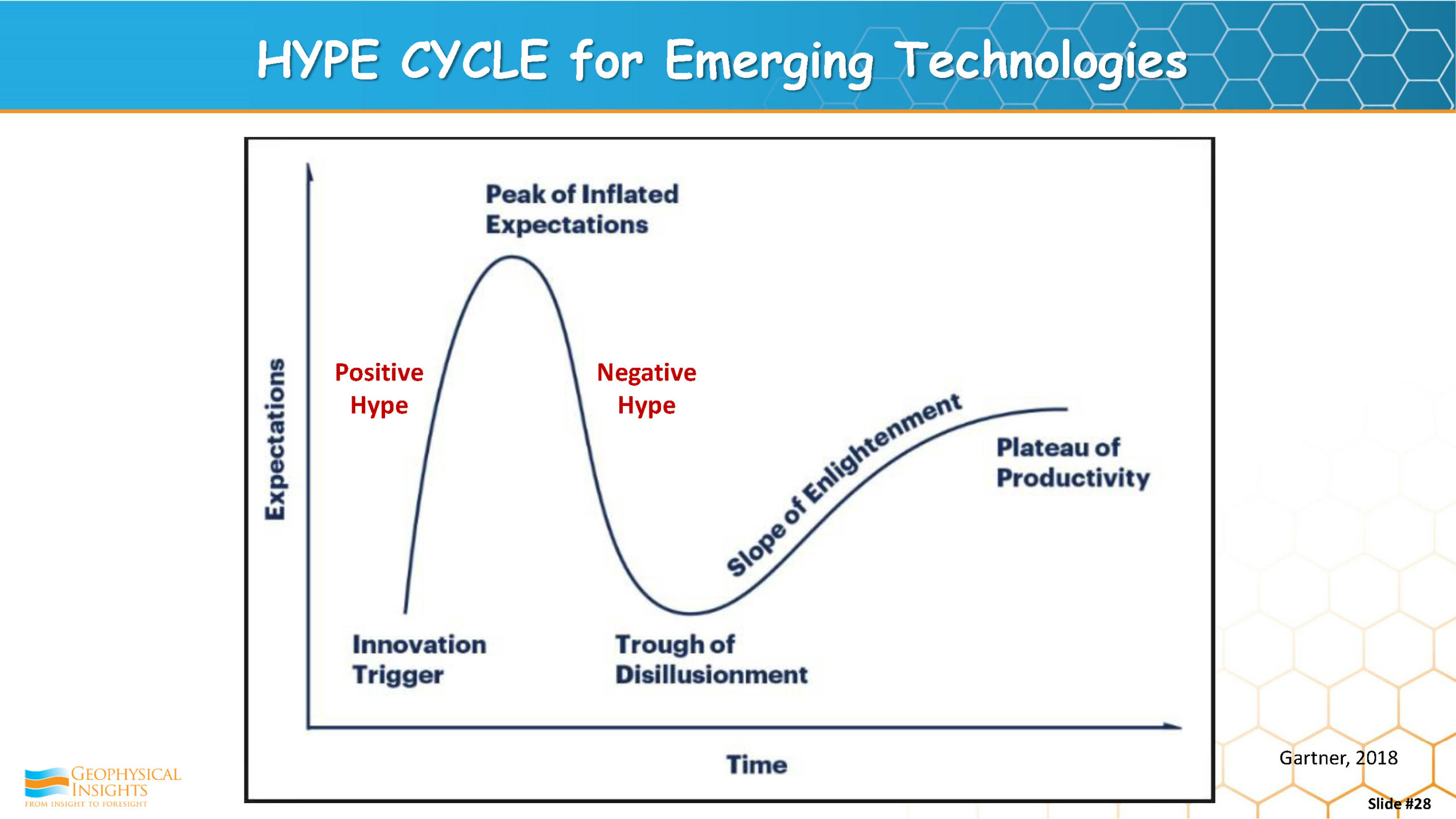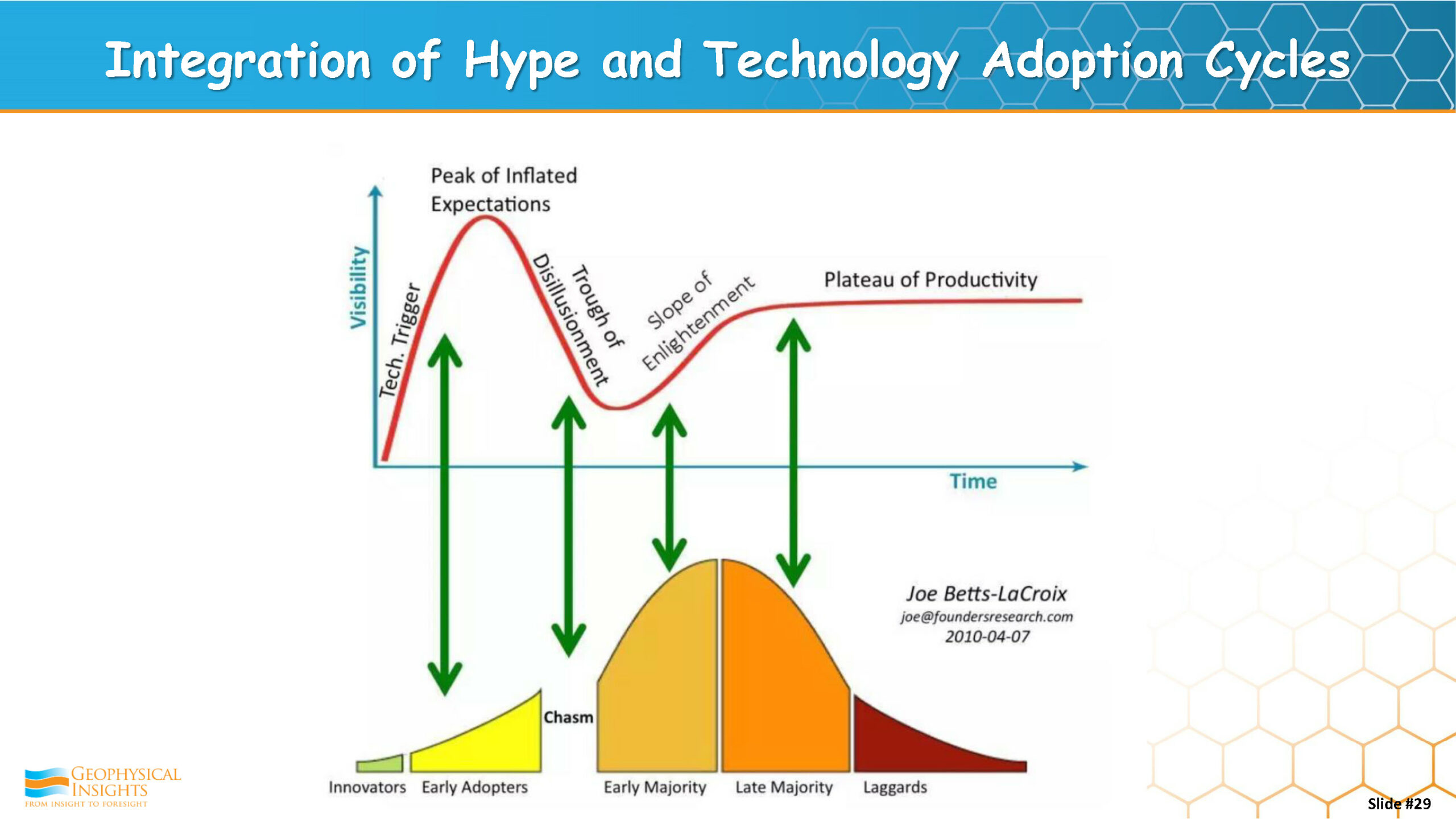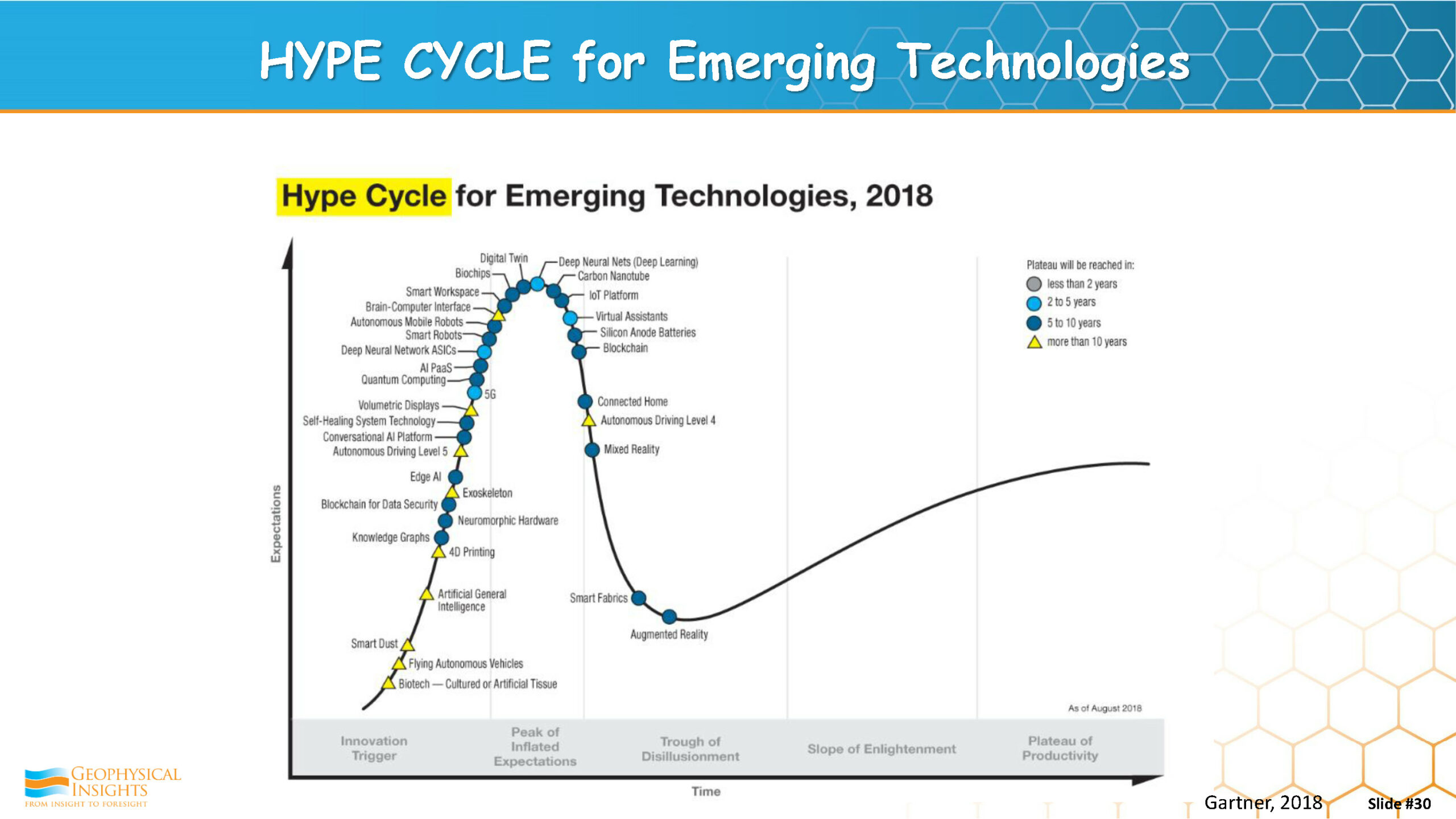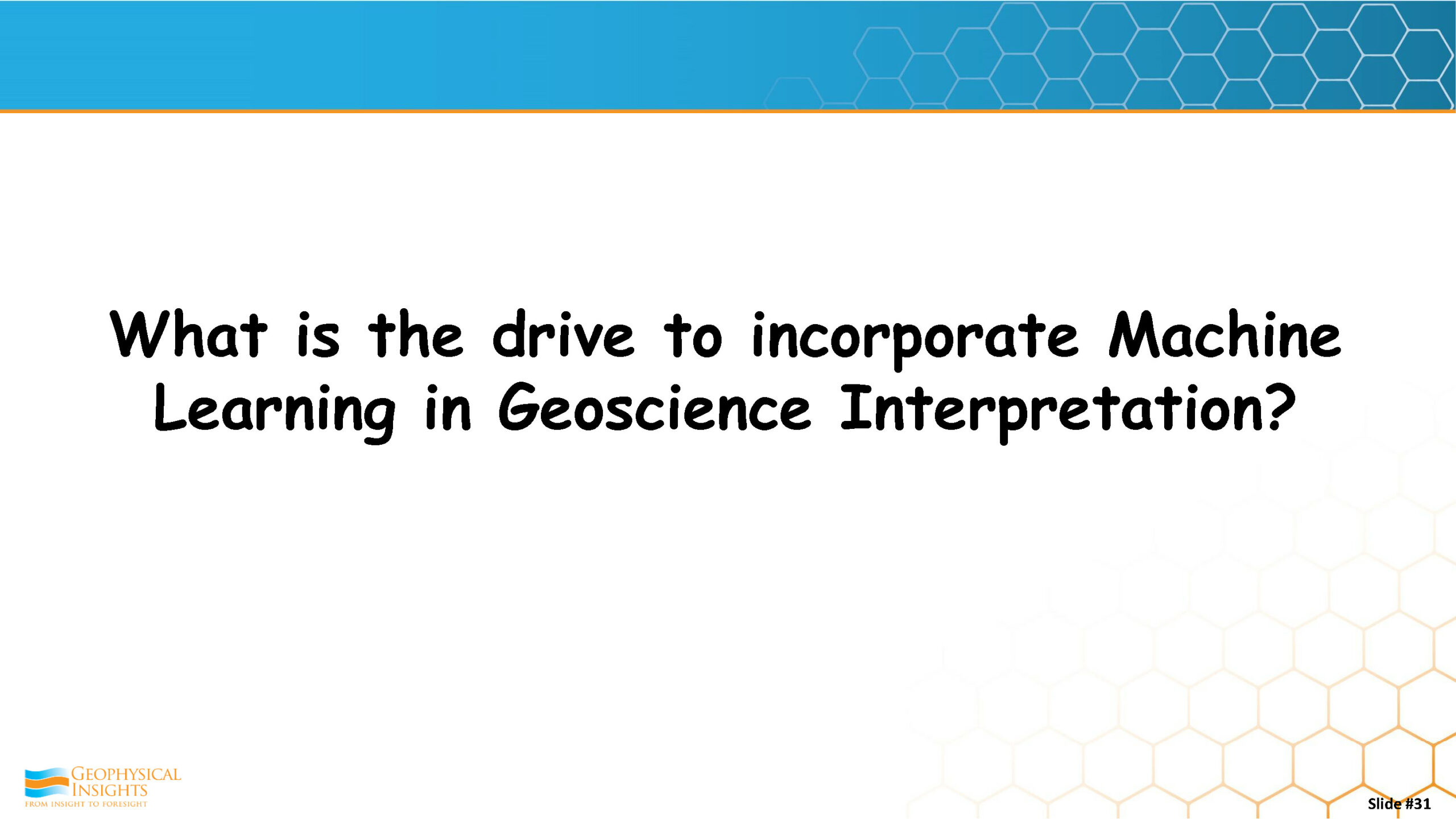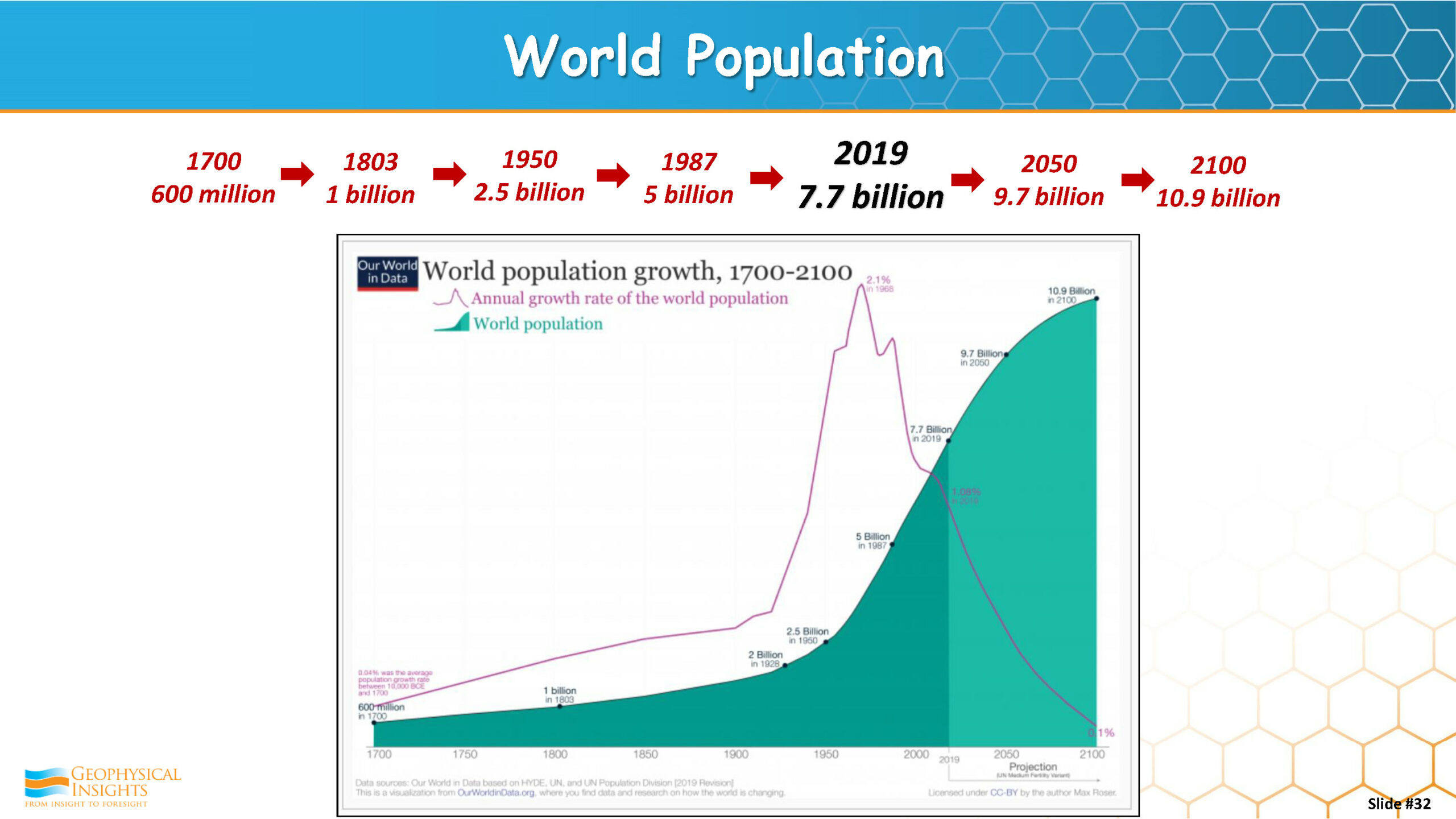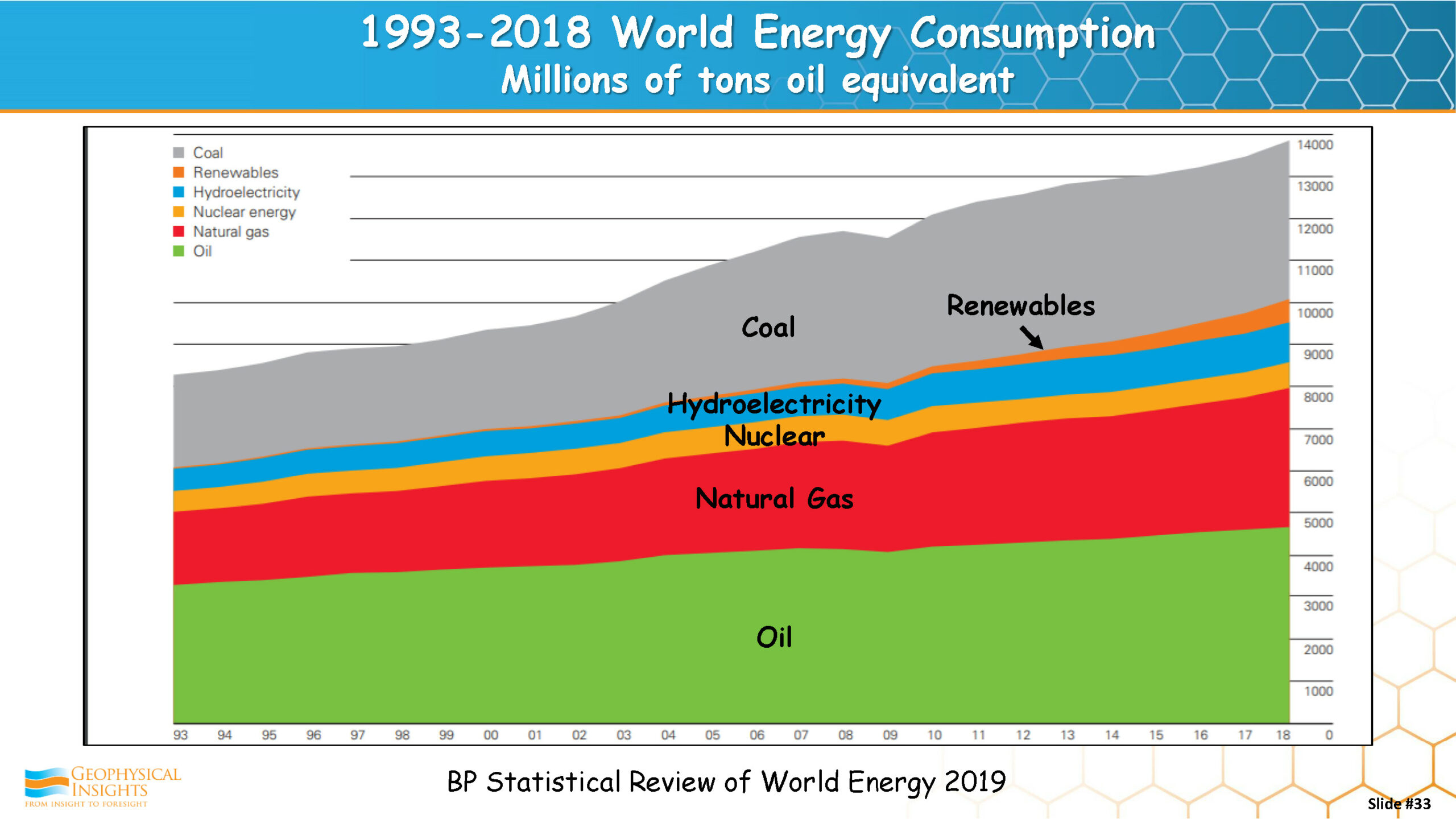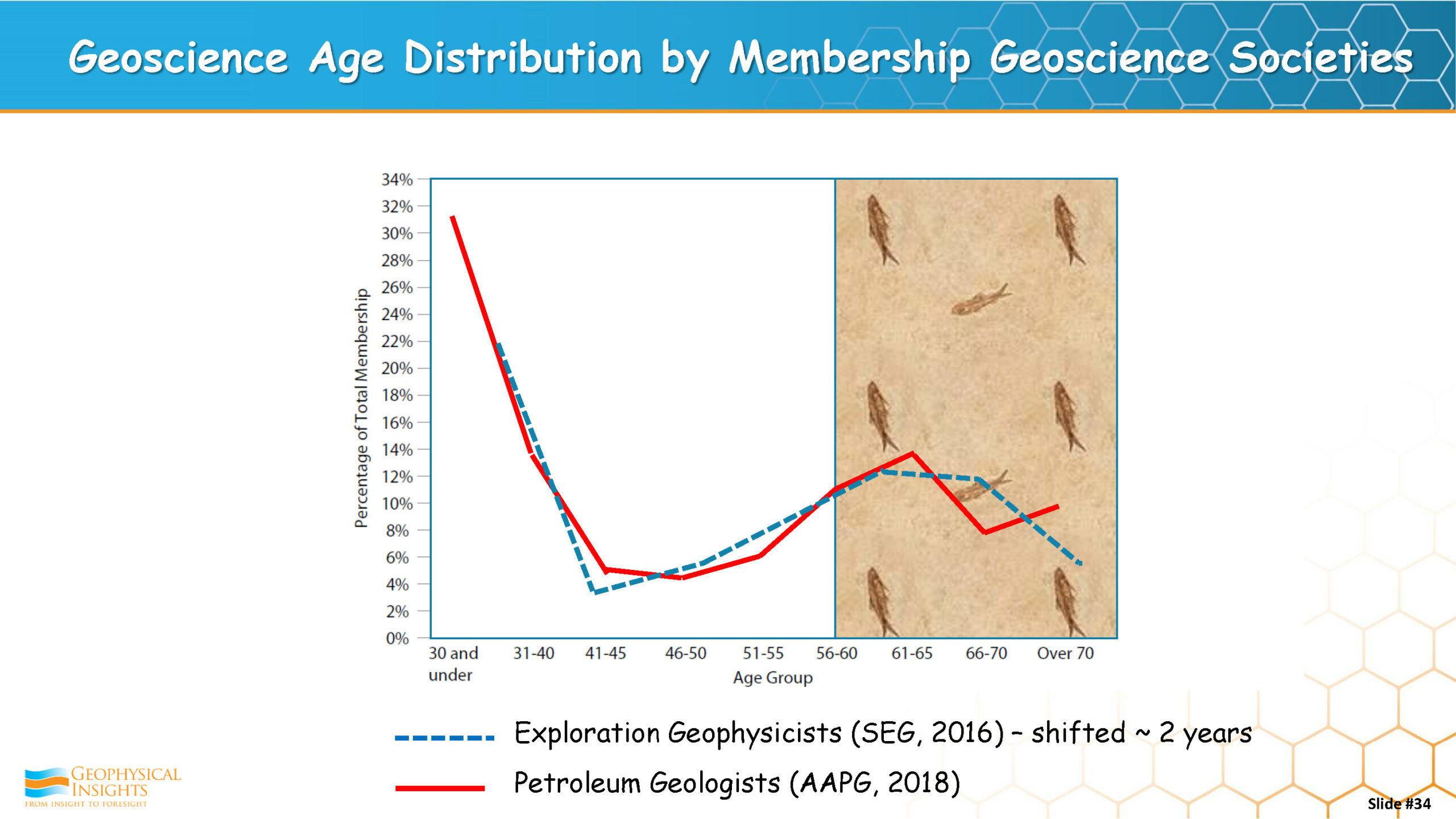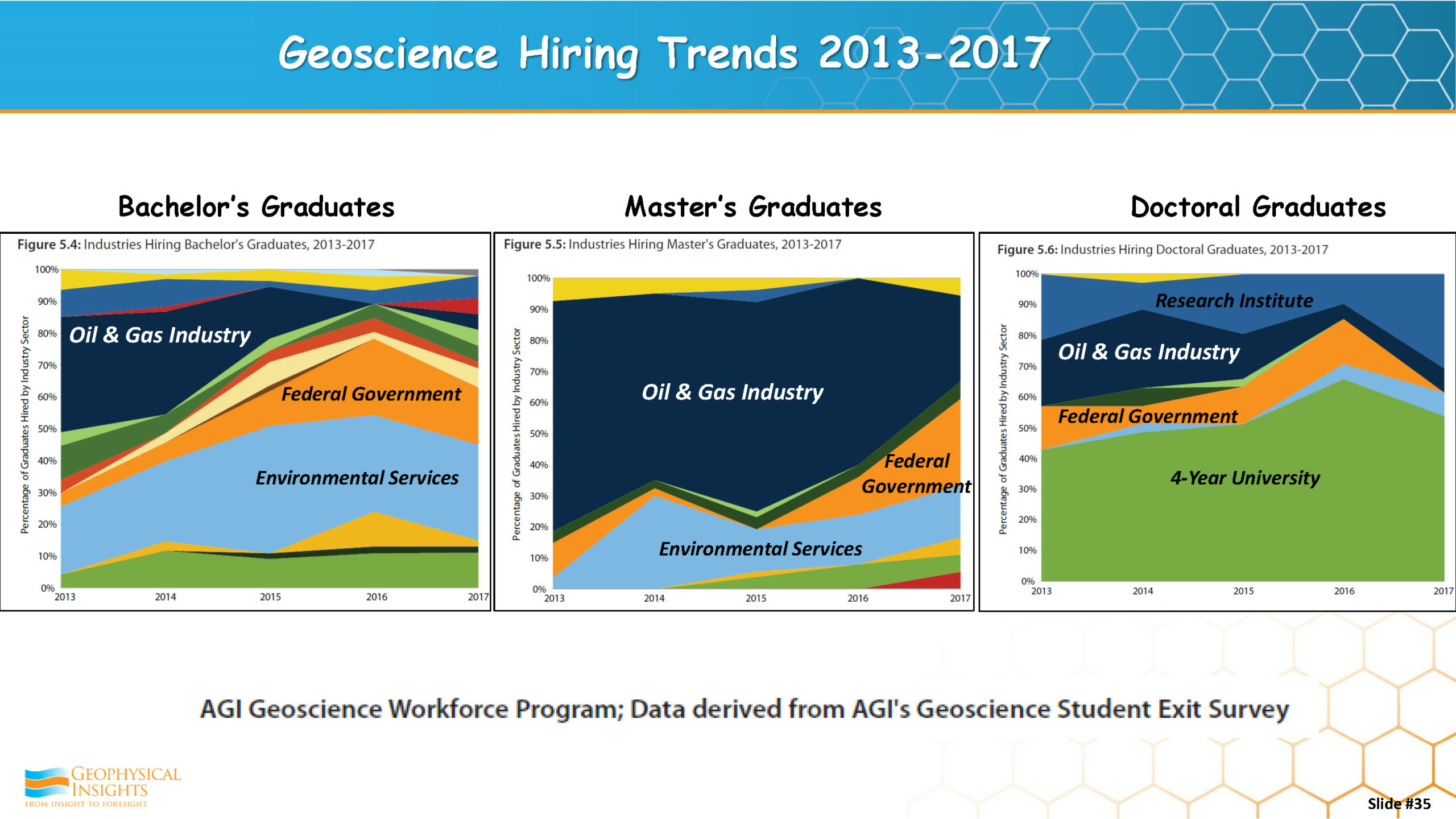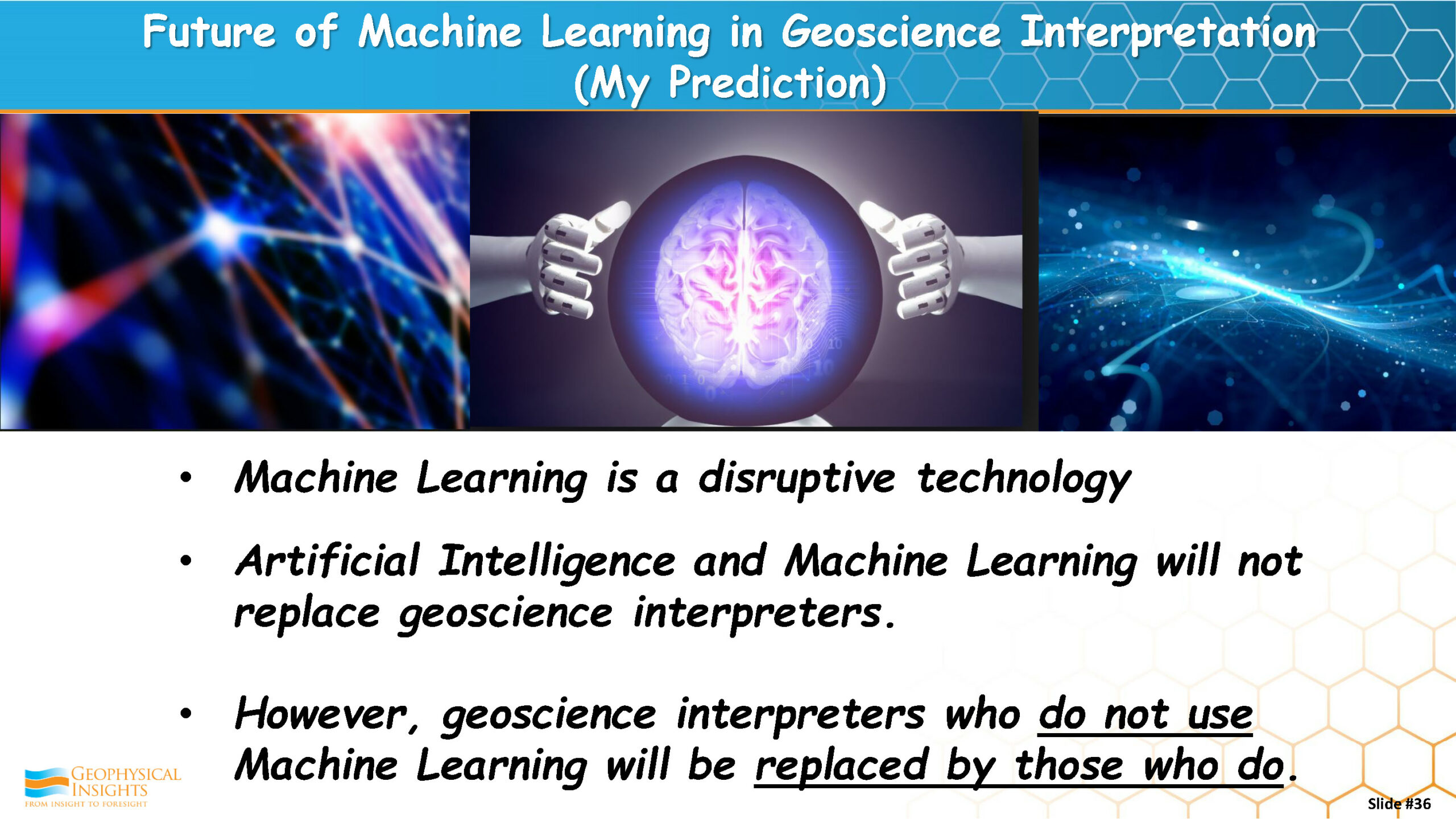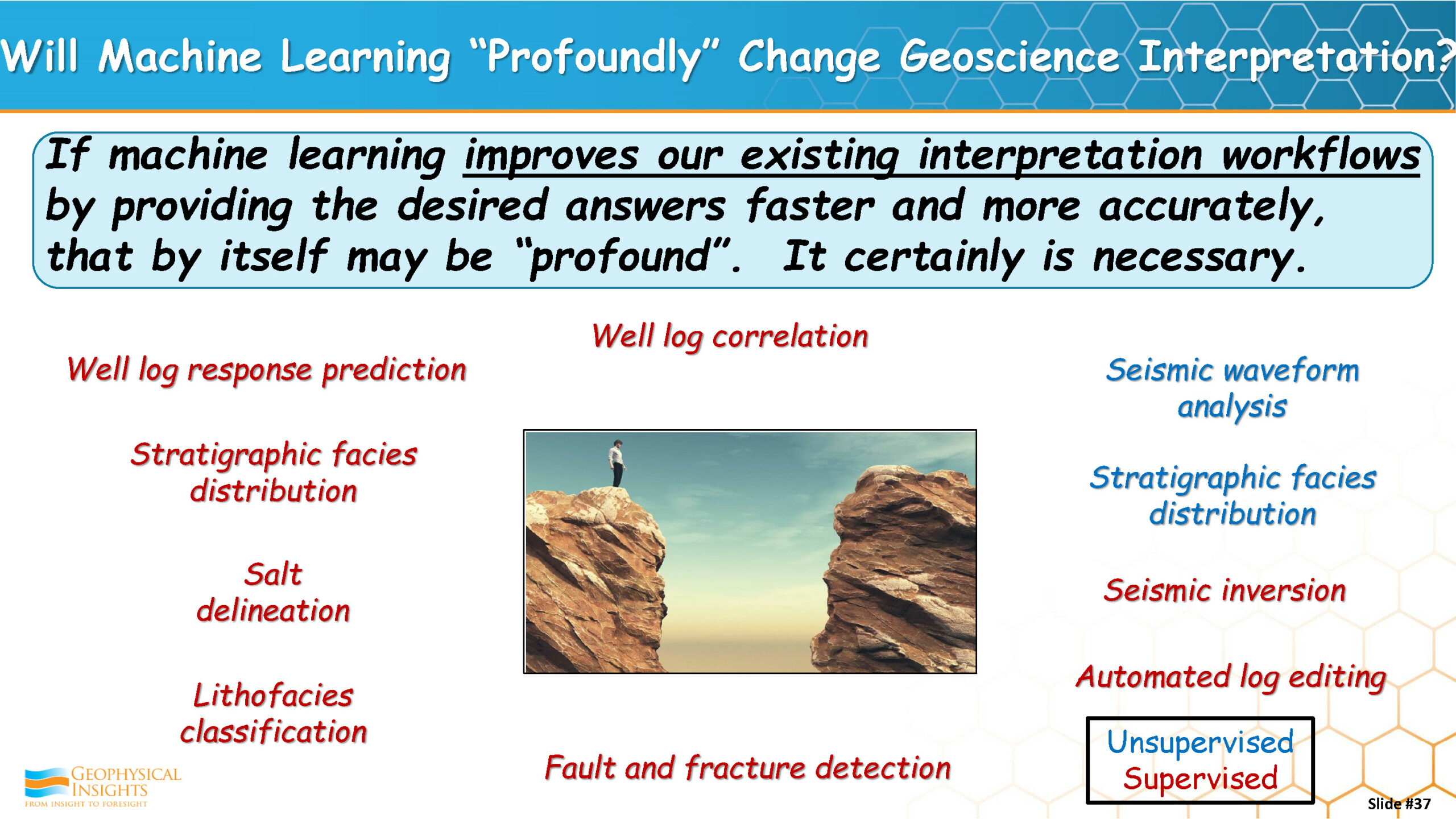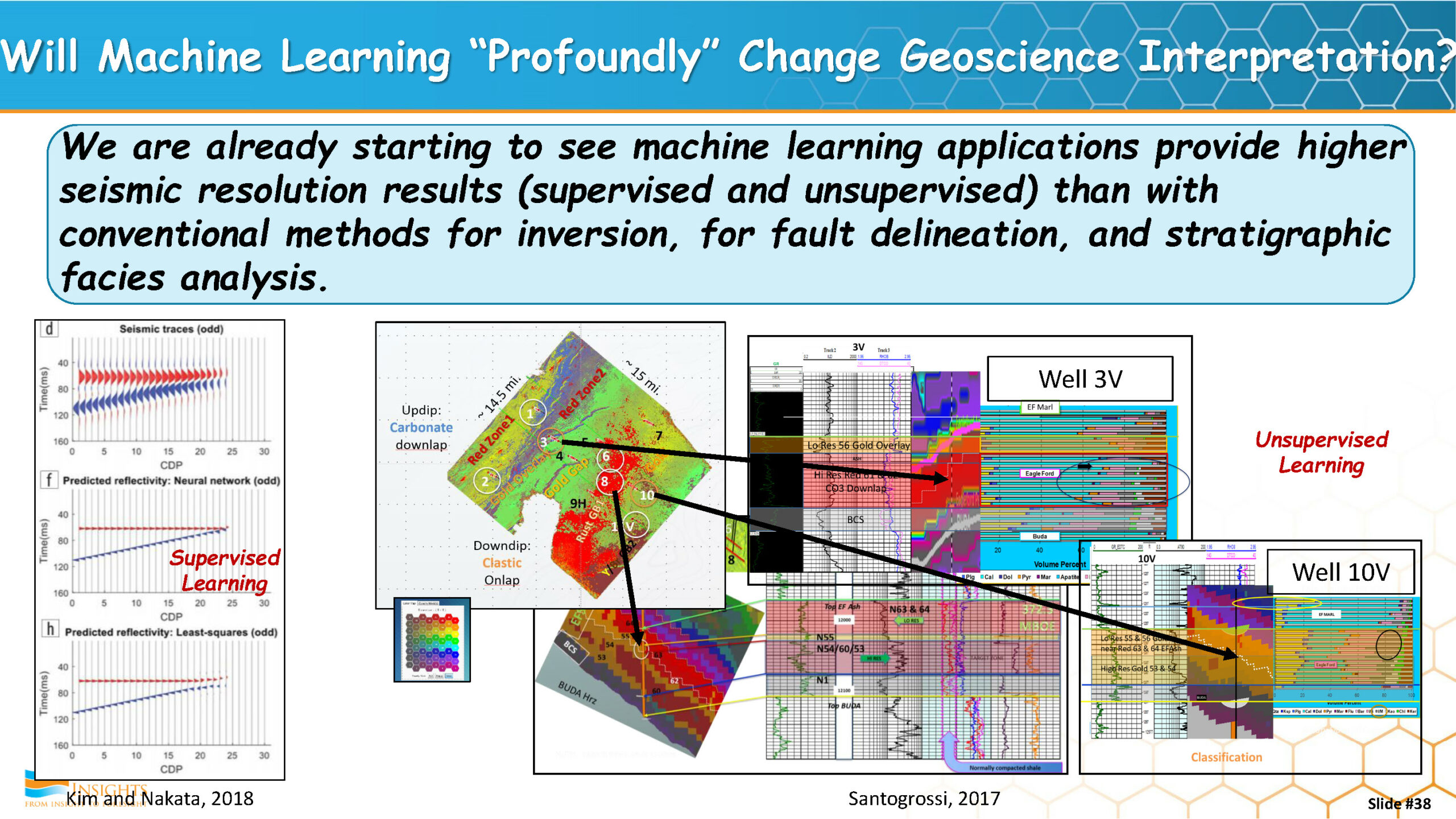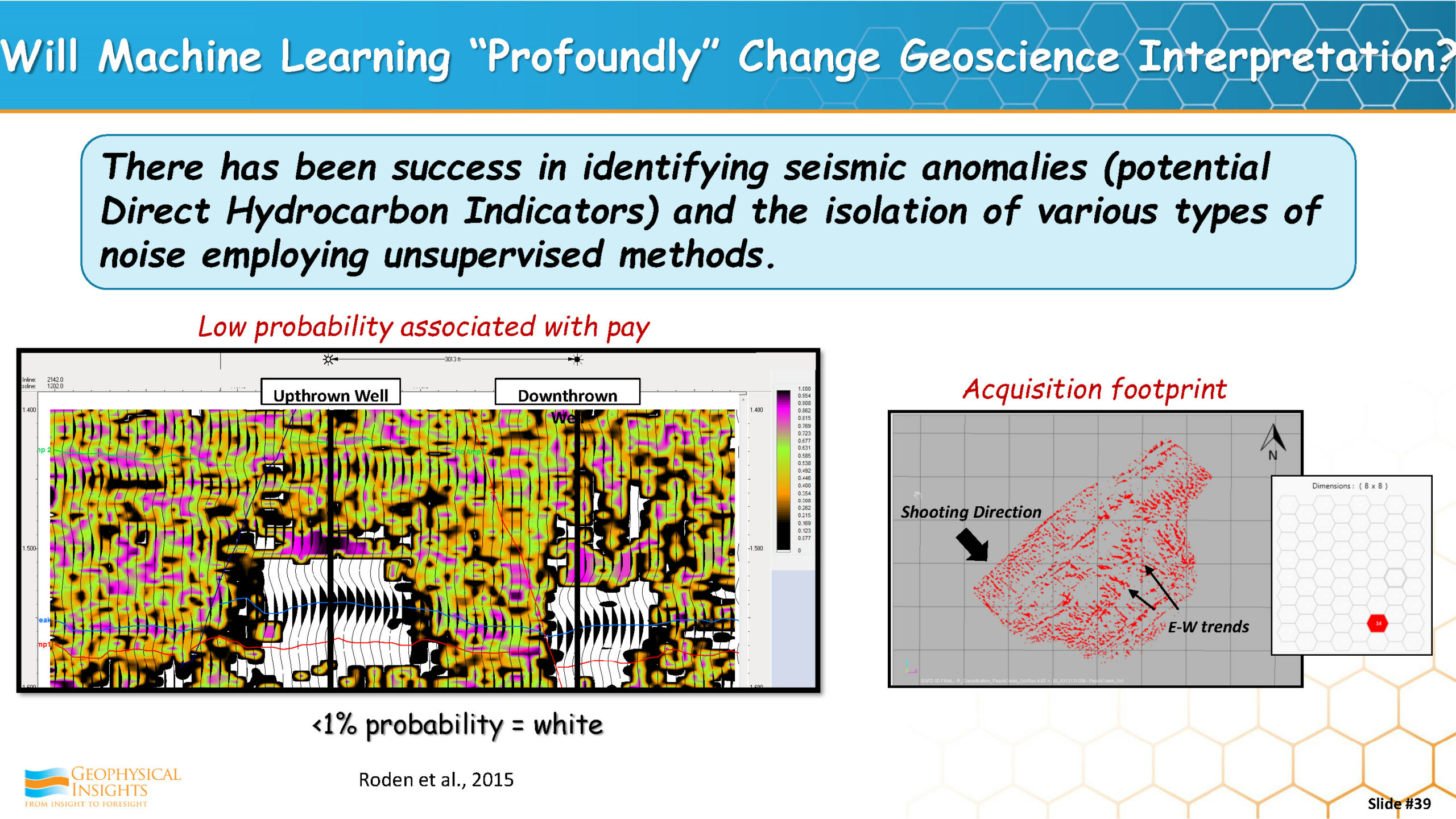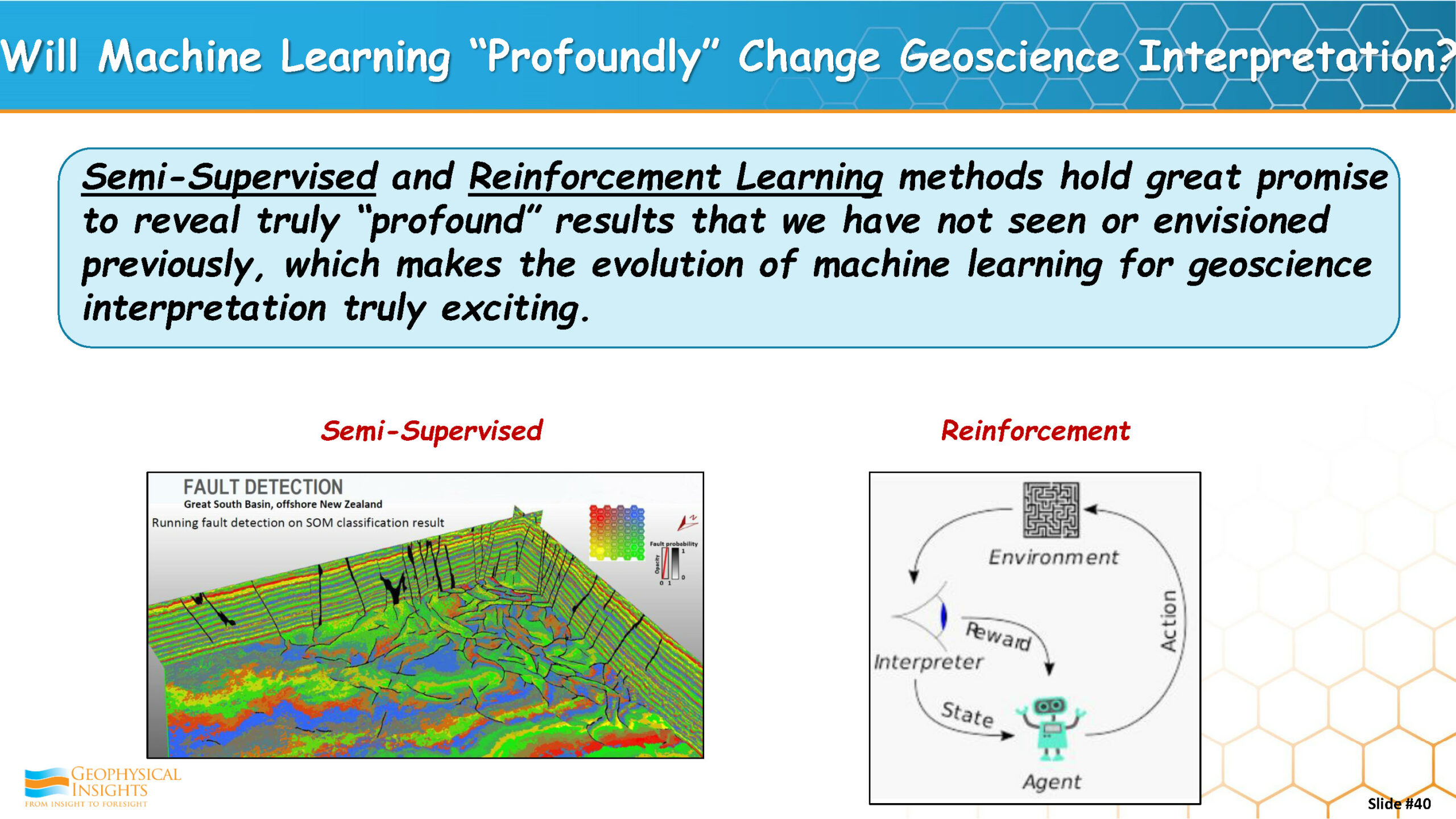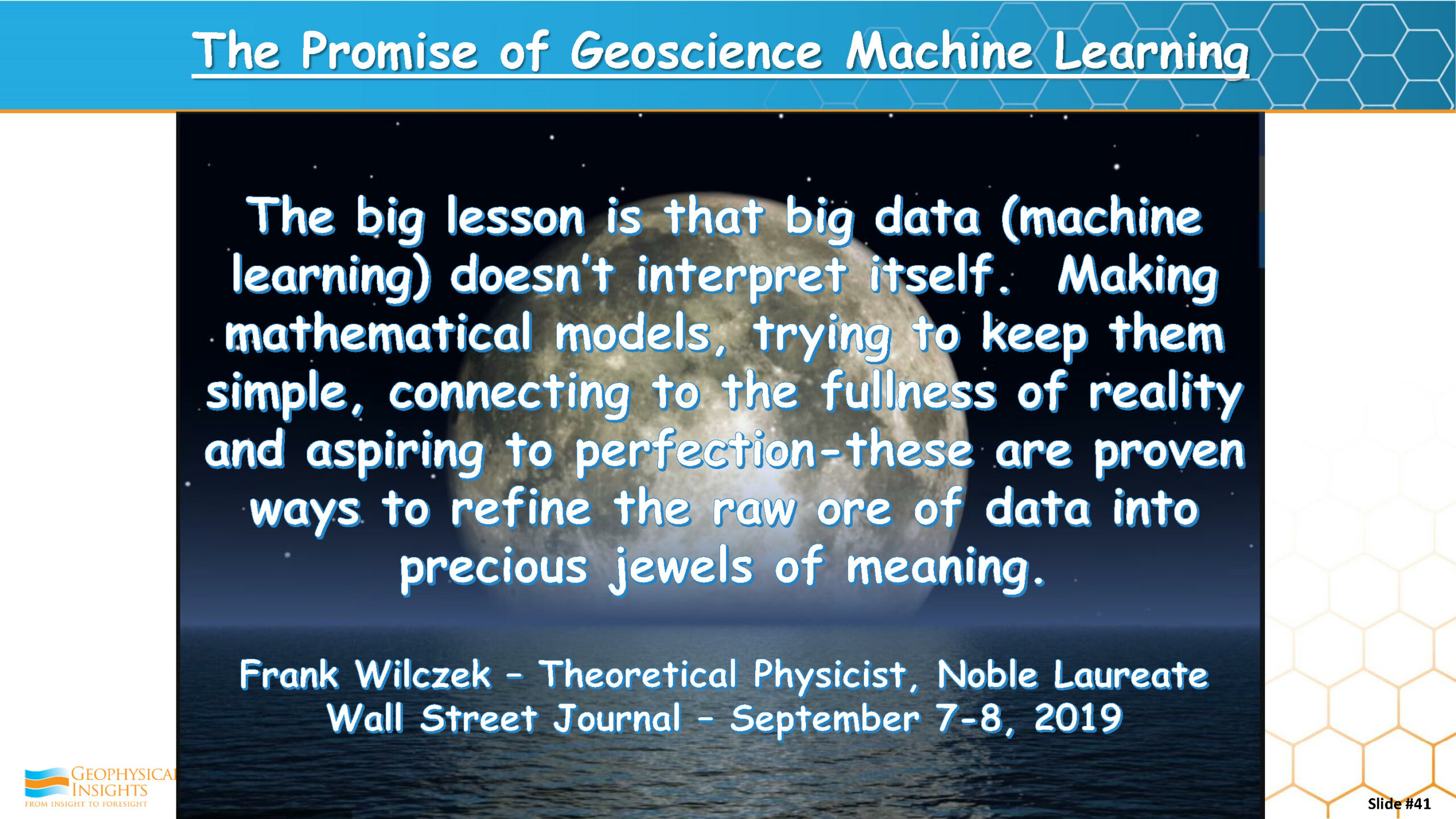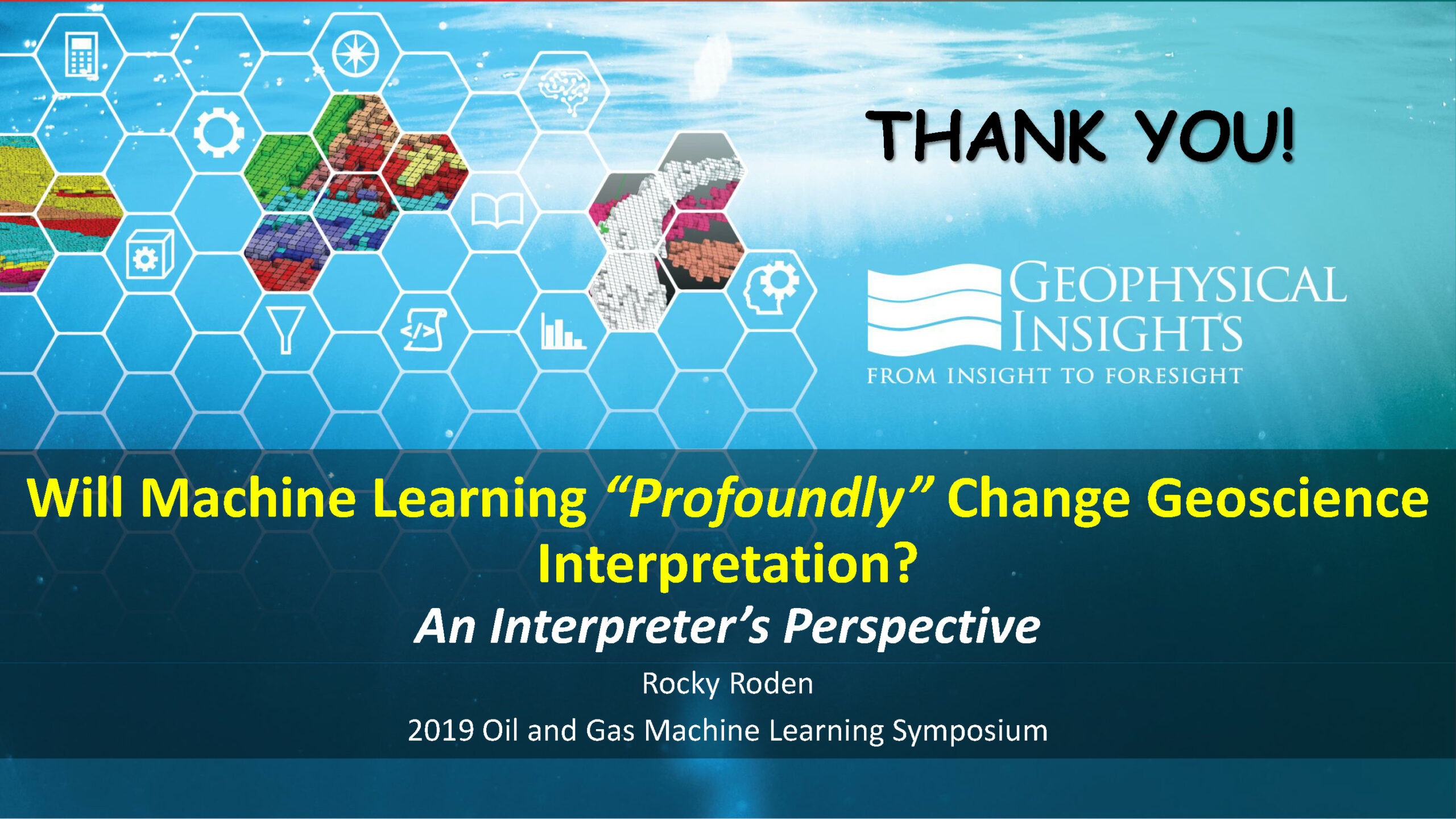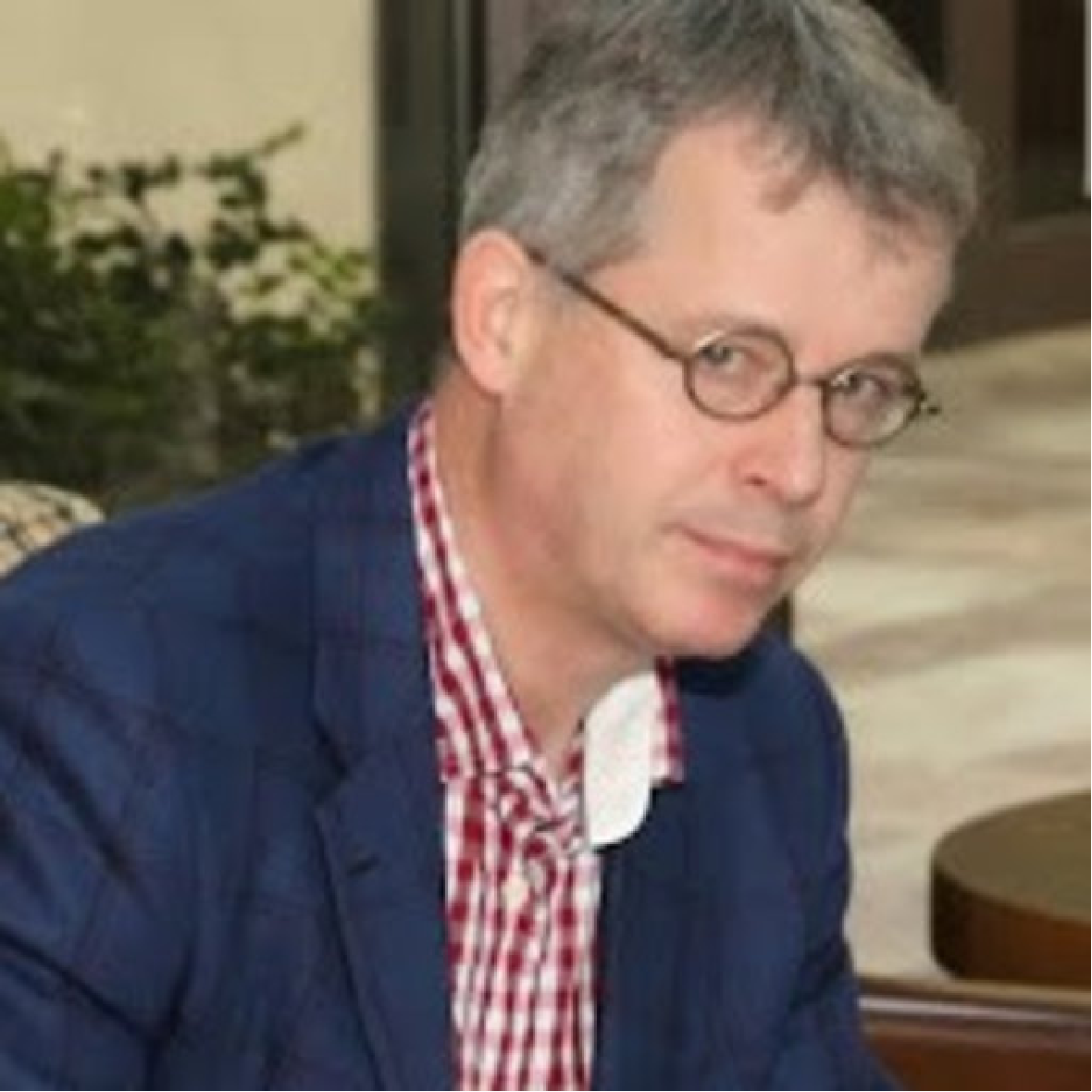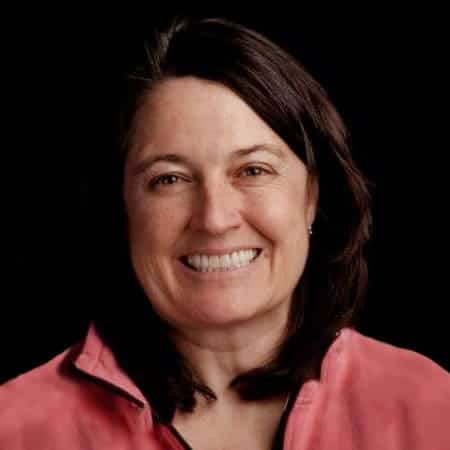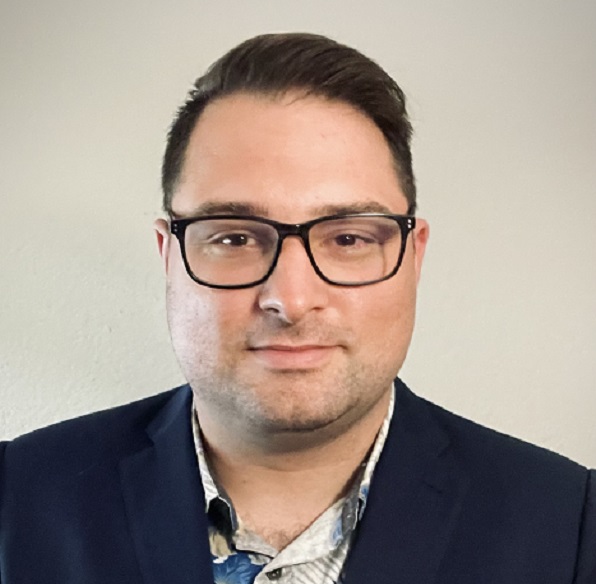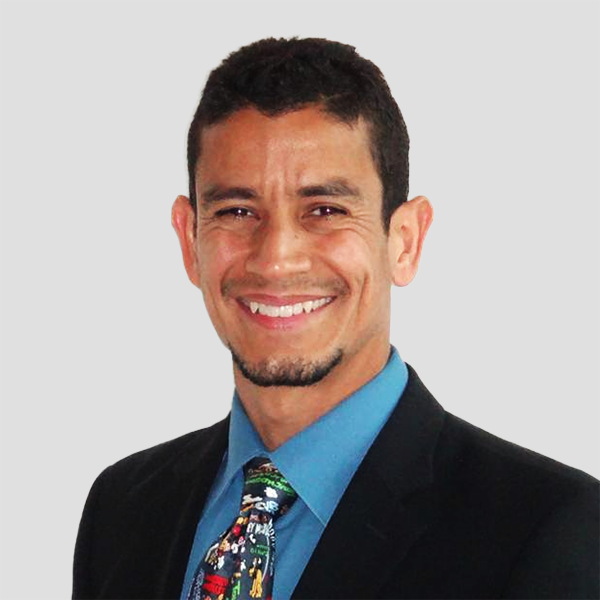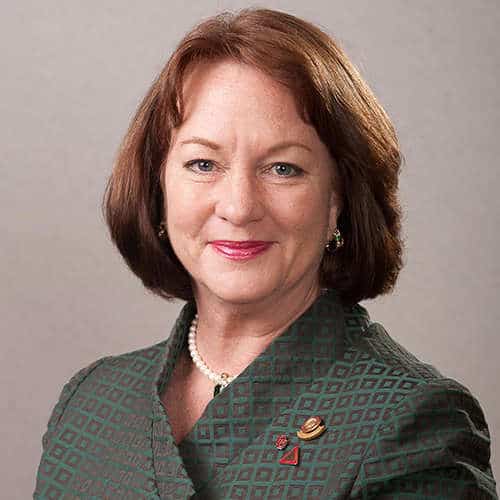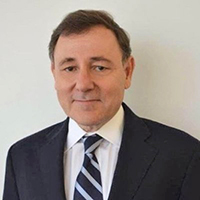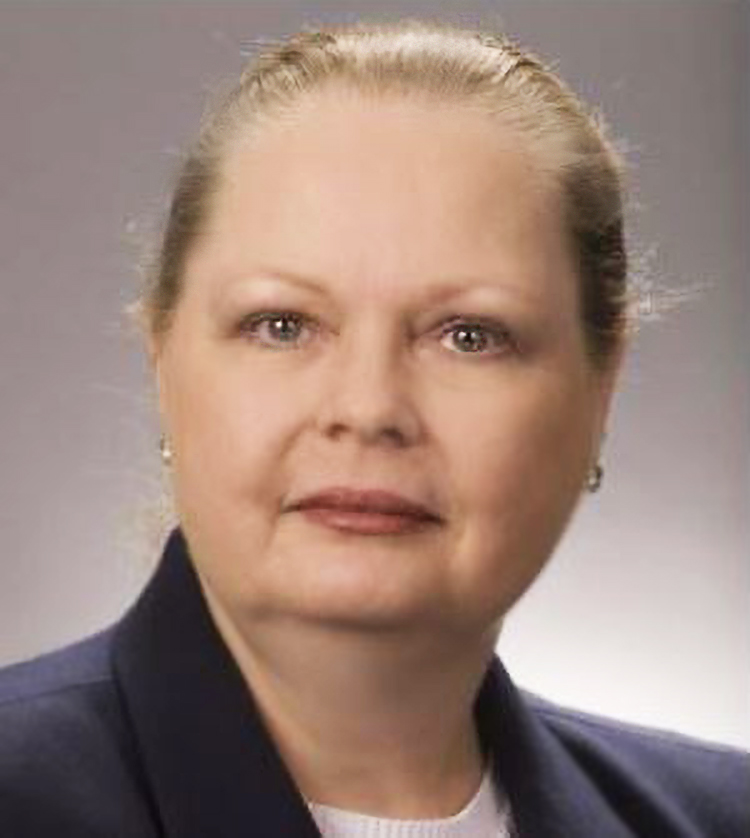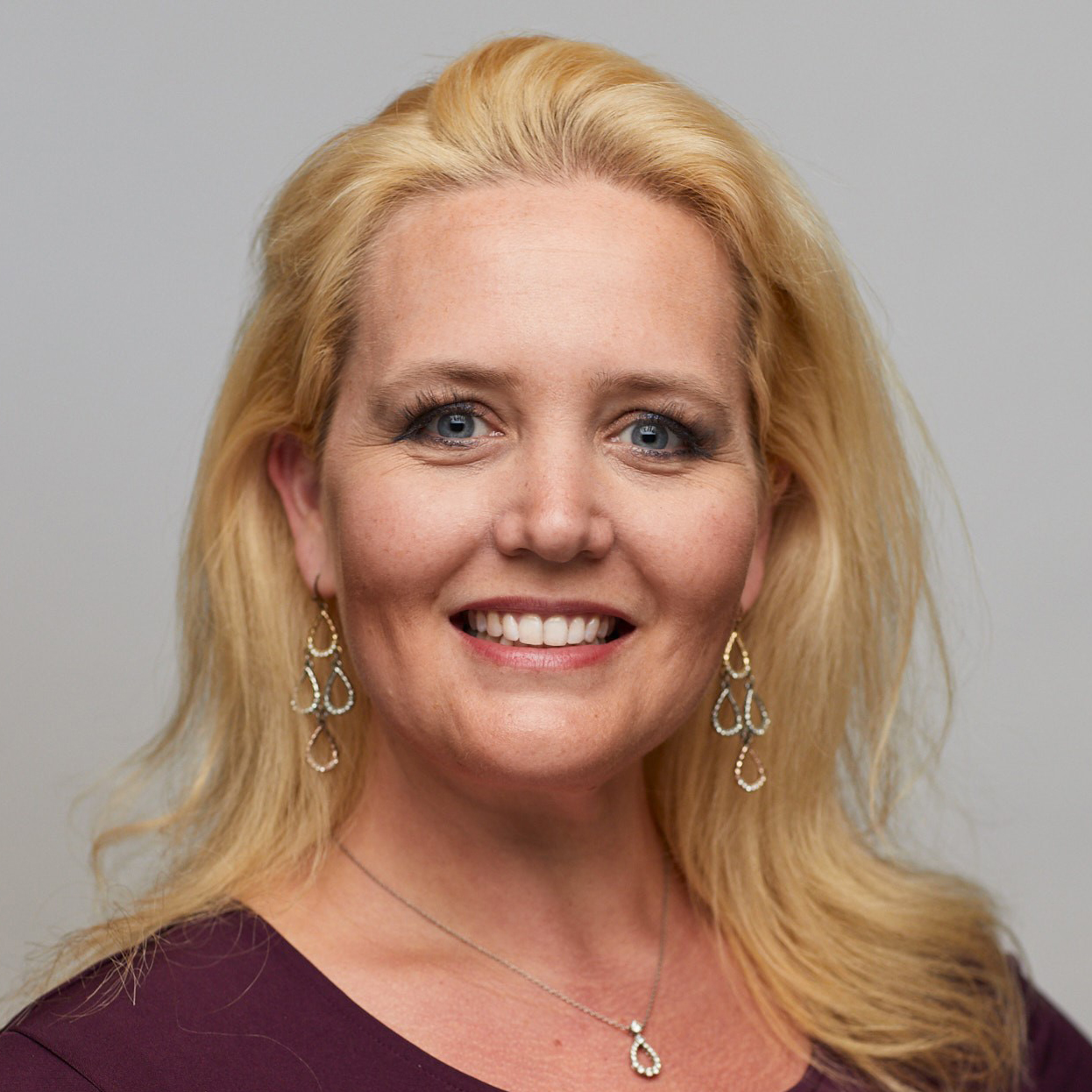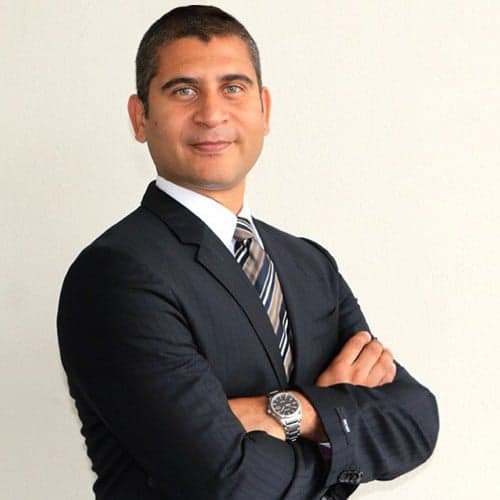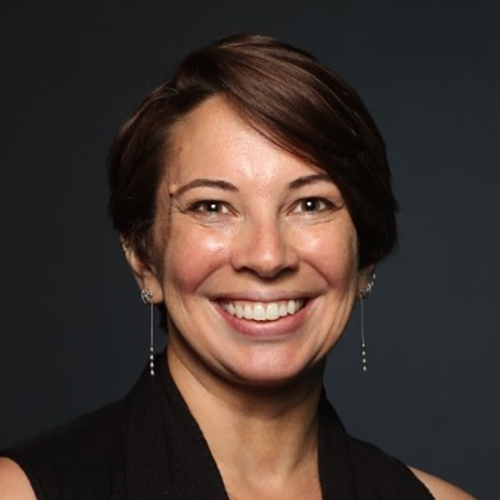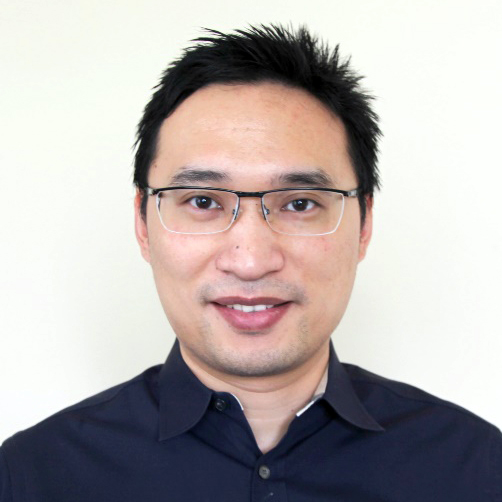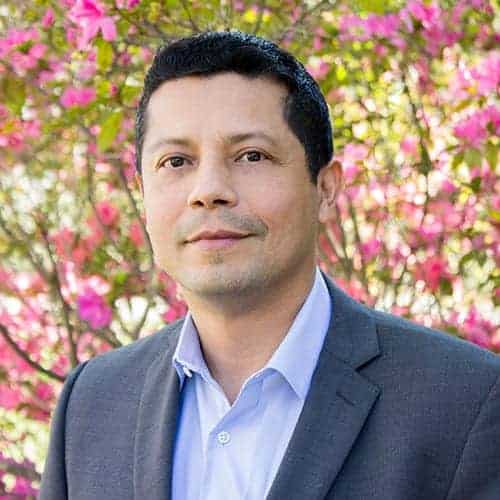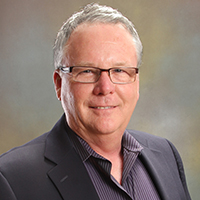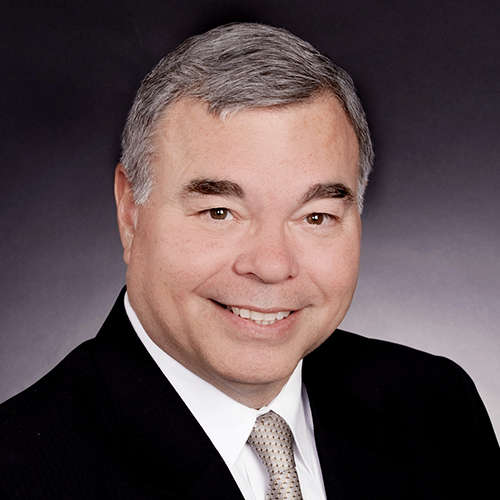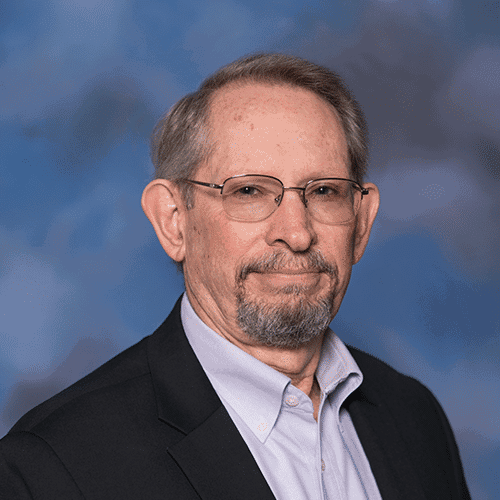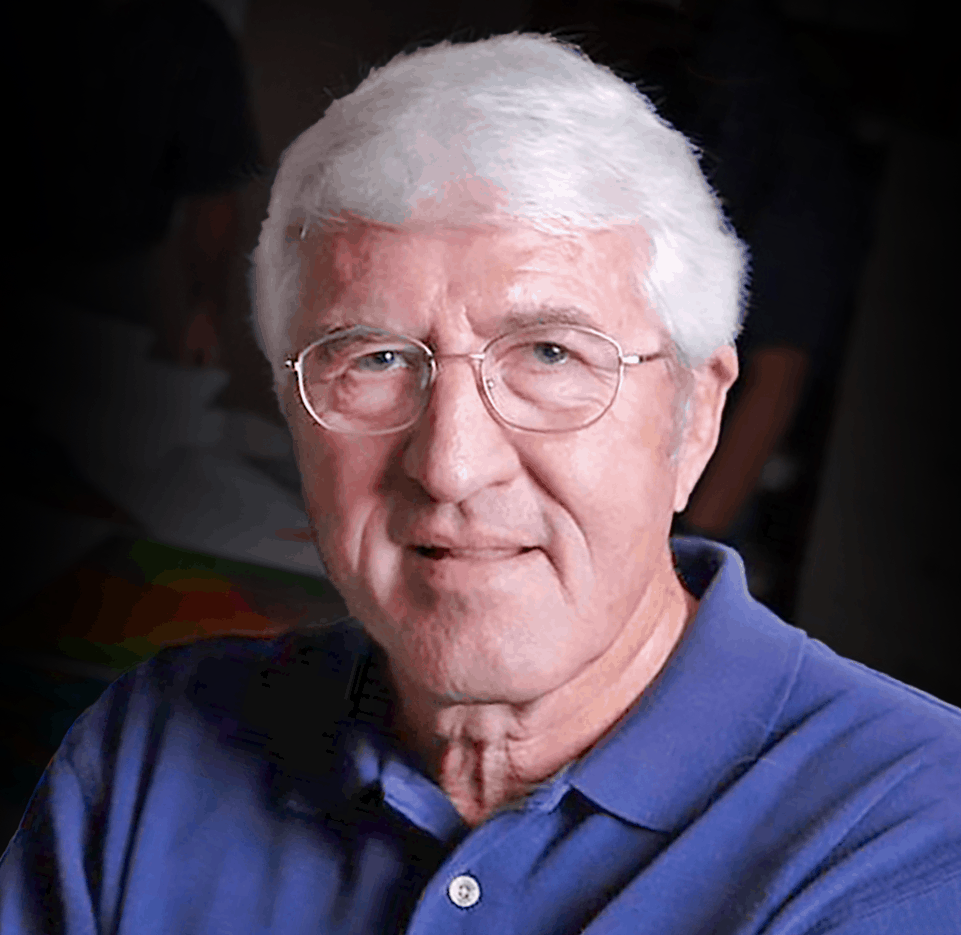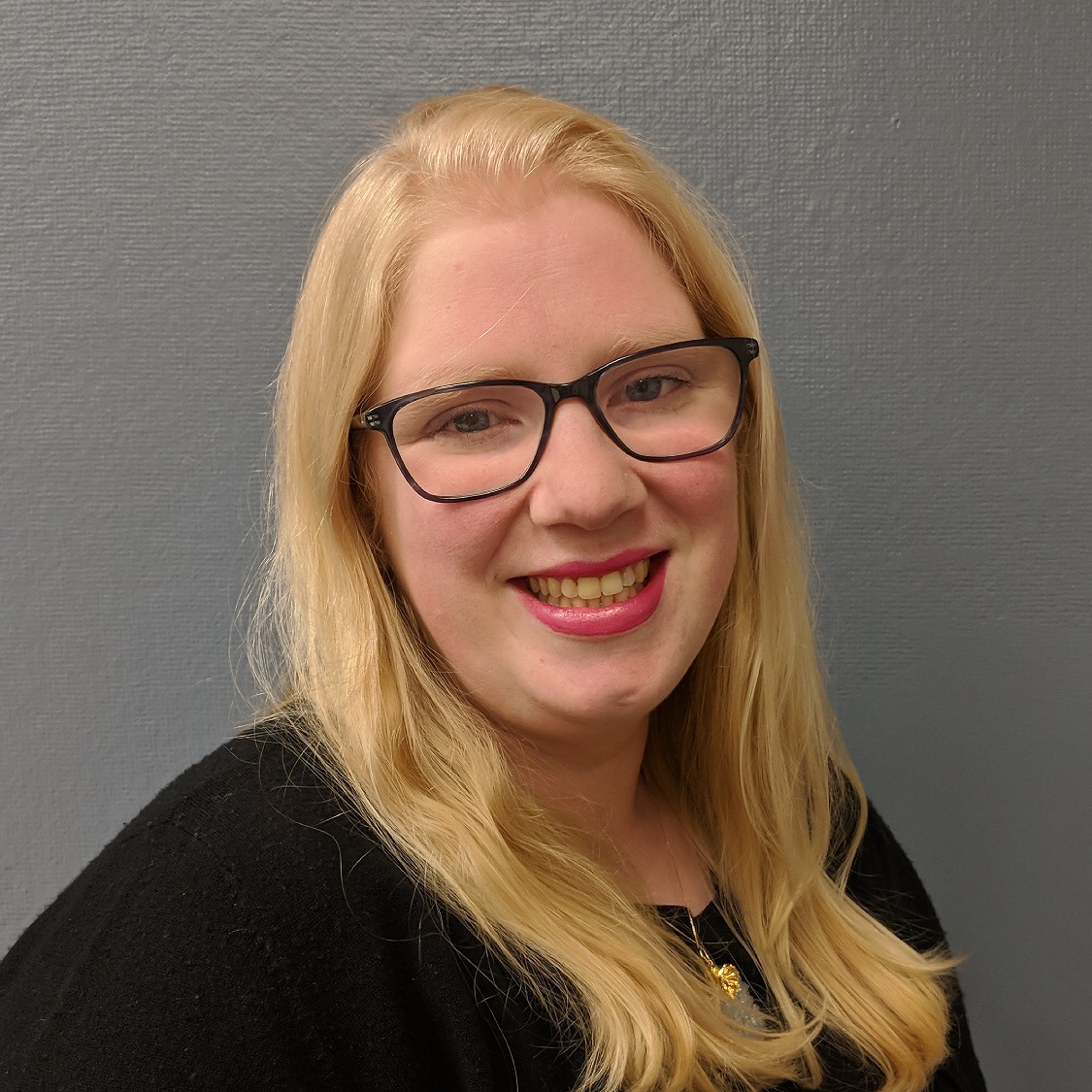Abstract:
Every day our lives are intertwined with applications, services, orders, products, research, and objects that are incorporated, produced, or effected in some way by Artificial Intelligence and Machine Learning. Buzz words like Deep Learning, Big Data, Supervised and Unsupervised Learning are employed routinely to describe Machine Learning, but how does this technology relate to geoscience interpretation and finding oil and gas? More importantly, do Machine Learning methods produce better results than conventional interpretation approaches, or are they simply a means of automating existing processes? Traditional interpretation approaches that geologists and geophysicists employ are physics-based solutions and now Machine Learning threatens to alter that accepted practice. Will the integration of machine learning improve our present interpretation workflows, provide moderate to no improvements (overhyped) or produce “profound” results that have not been identified previously? Machine Learning is a disruptive technology that holds great promise and this presentation will explore that potential from a geoscience interpreter’s perspective.
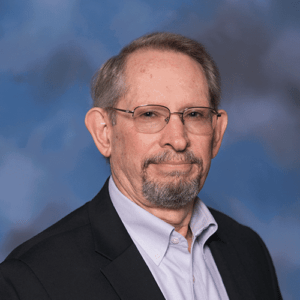
Rocky R. Roden
Senior Consulting Geophysicist – Geophysical Research, LLC (d/b/a Geophysical Insights)
Over 45 years in industry as a Geophysicist, Exploration/Development Manager, Director of Applied Technology, and Chief Geophysicist. Previously with Texaco, Pogo Producing, Maxus Energy, YPF Maxus, and Repsol (retired as Chief Geophysicist 2001). Mr. Roden has authored or co-authored over 30 technical publications on various aspects of seismic interpretation, AVO analysis, amplitude risk assessment, and geoscience machine learning. Ex-Chairman of The Leading Edge editorial board. Currently a consultant with Geophysical Insights developing machine learning advances for oil and gas exploration and development and is a principal in the Rose and Associates DHI Risk Analysis Consortium, which has involved 85 oil companies since 2001, developing a seismic amplitude risk analysis program and worldwide prospect database. He holds a B.S. in Oceanographic Technology-Geology from Lamar University and an M.S. in Geological and Geophysical Oceanography from Texas A&M University.

